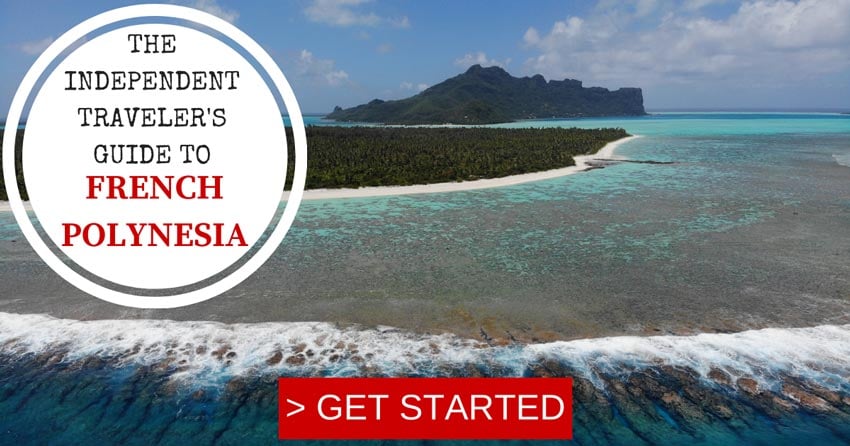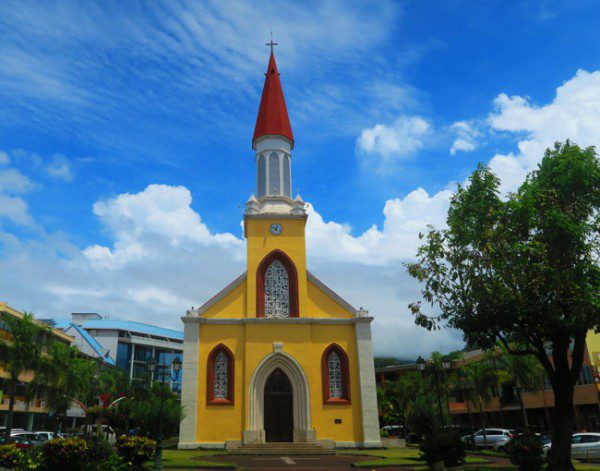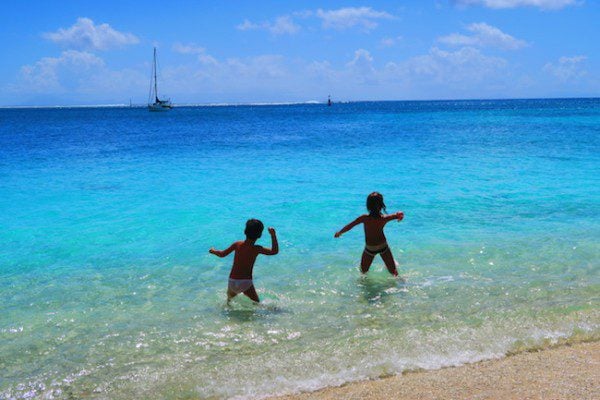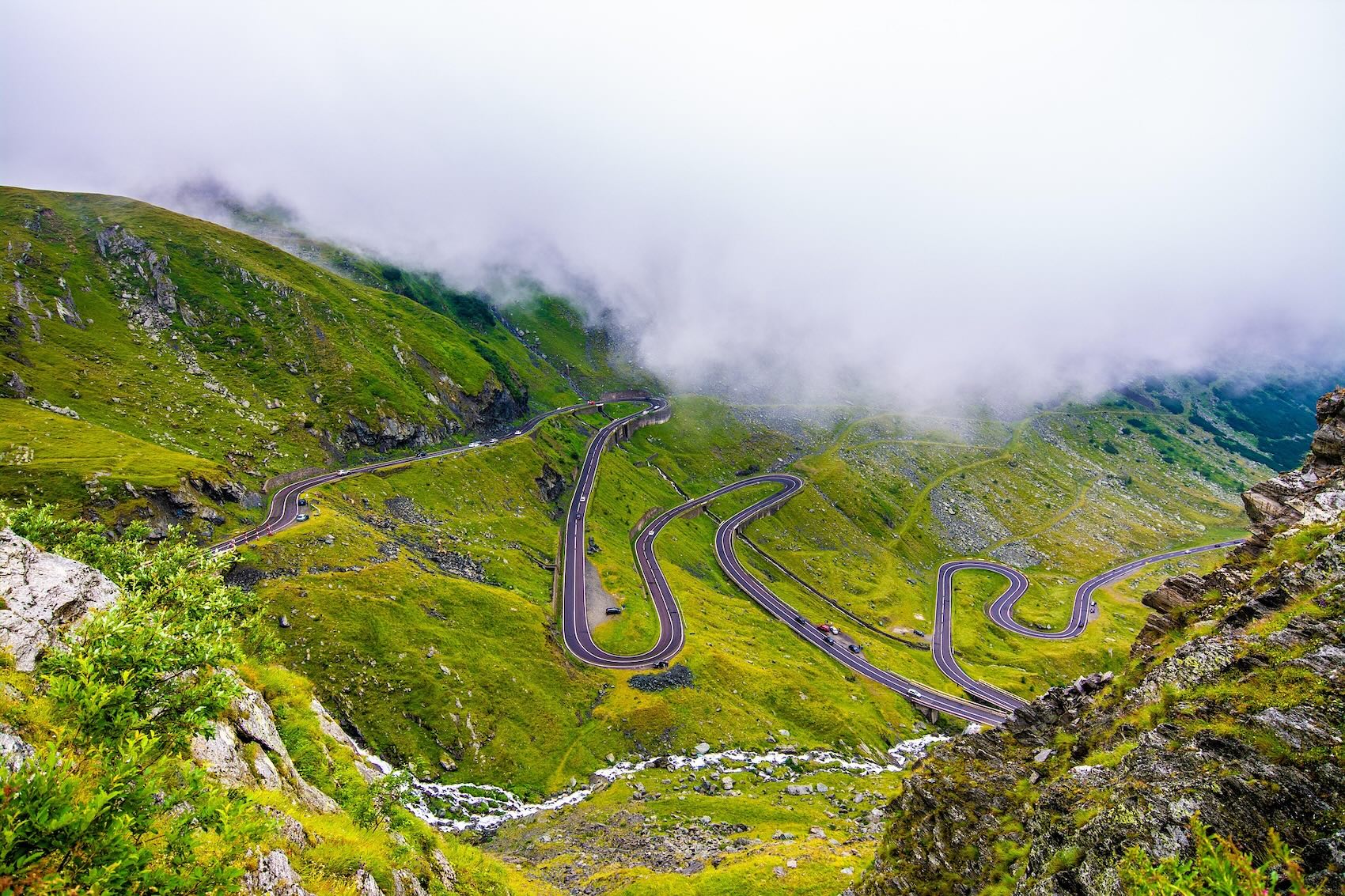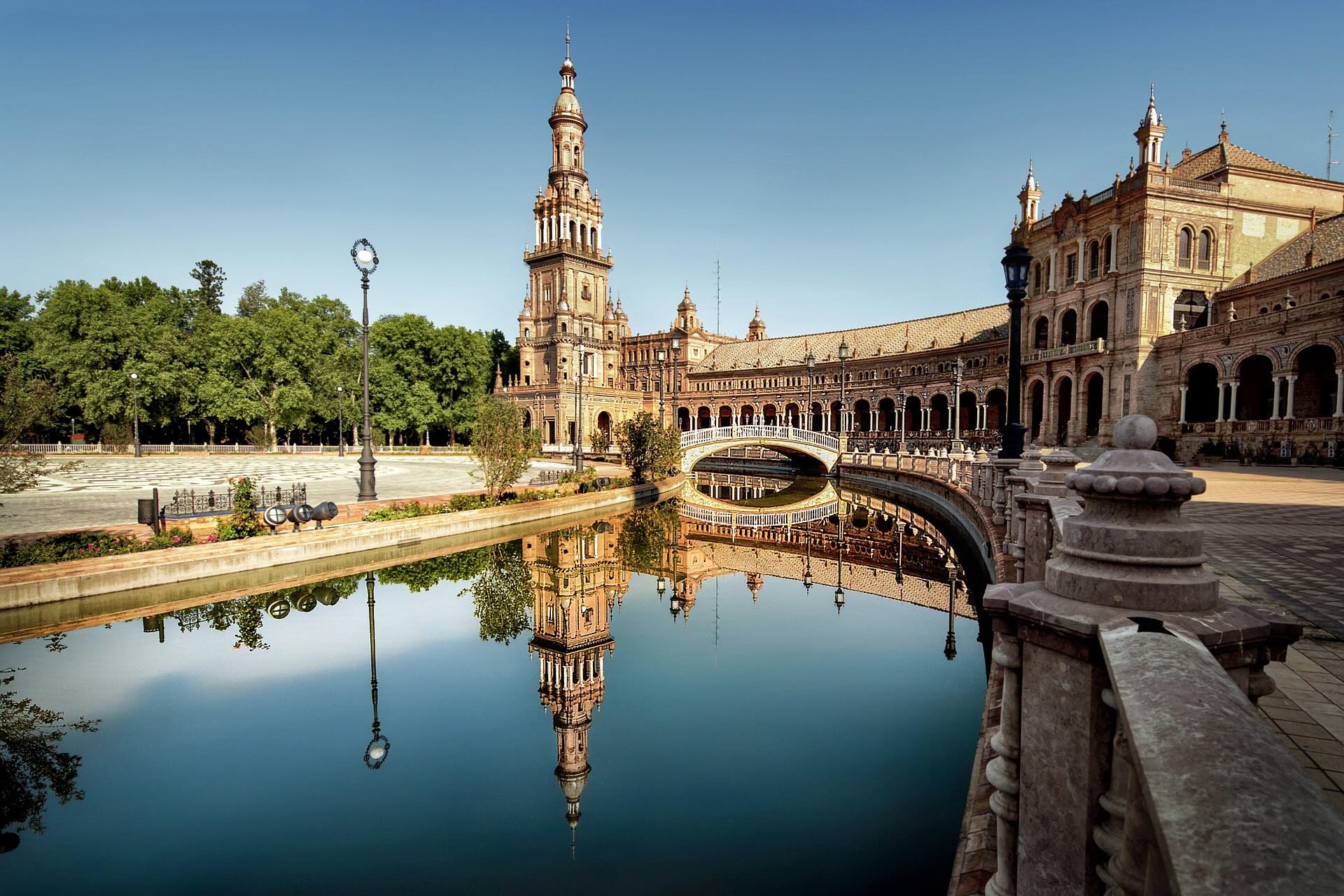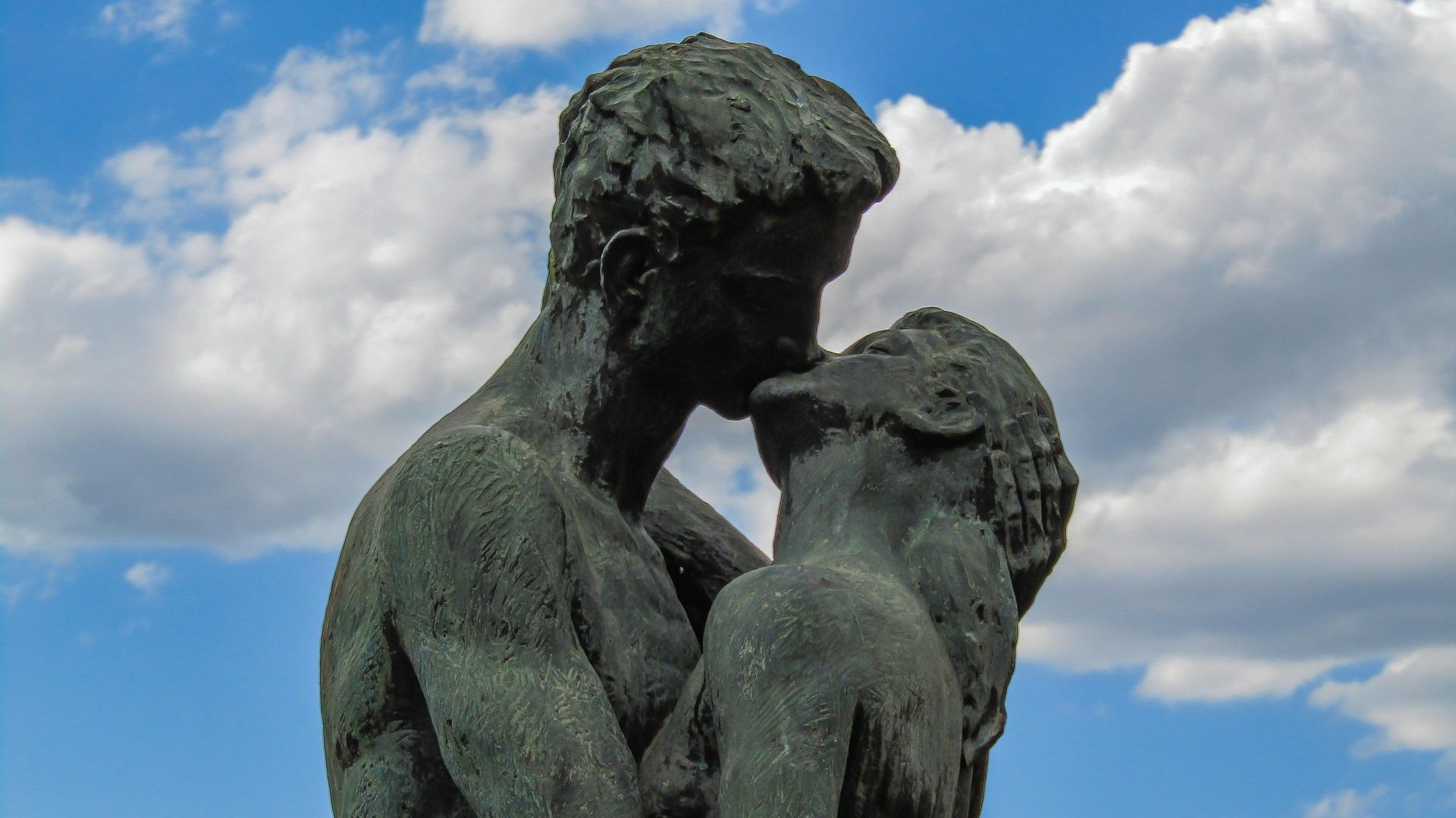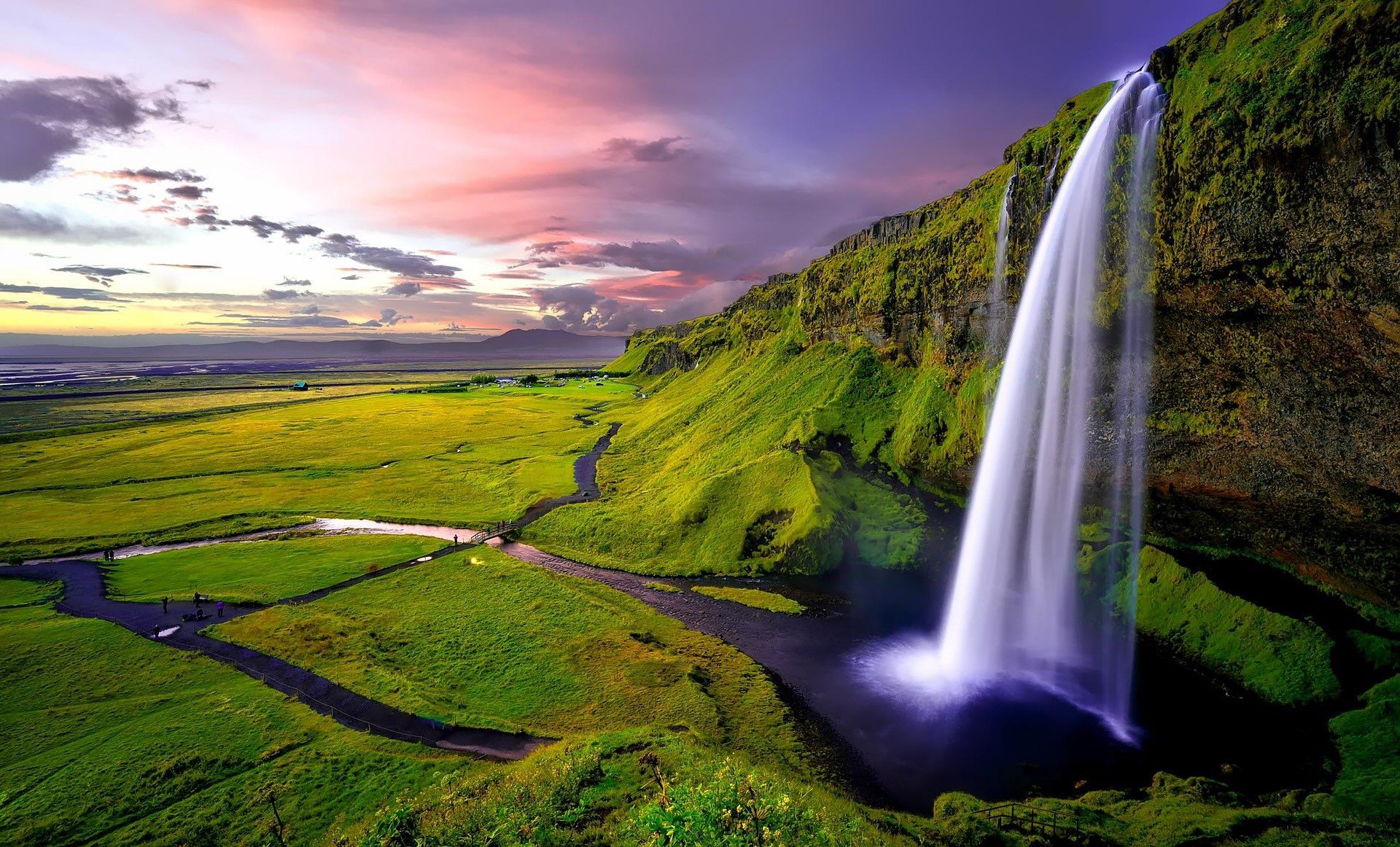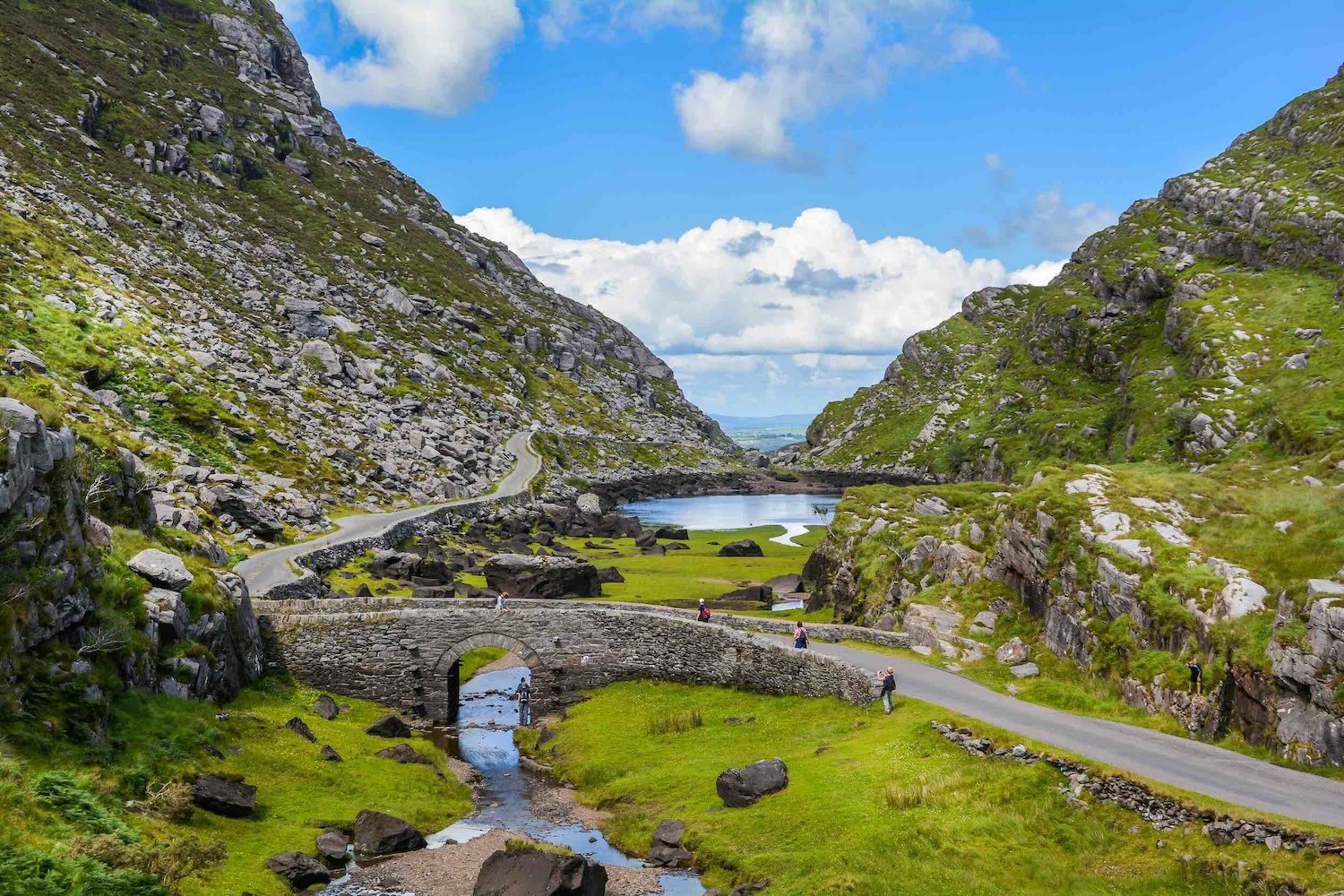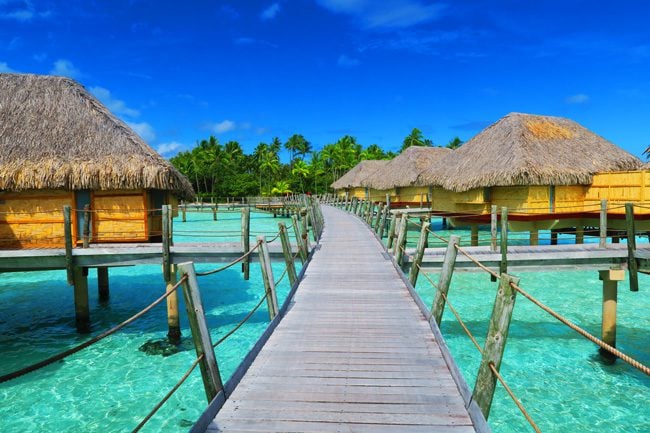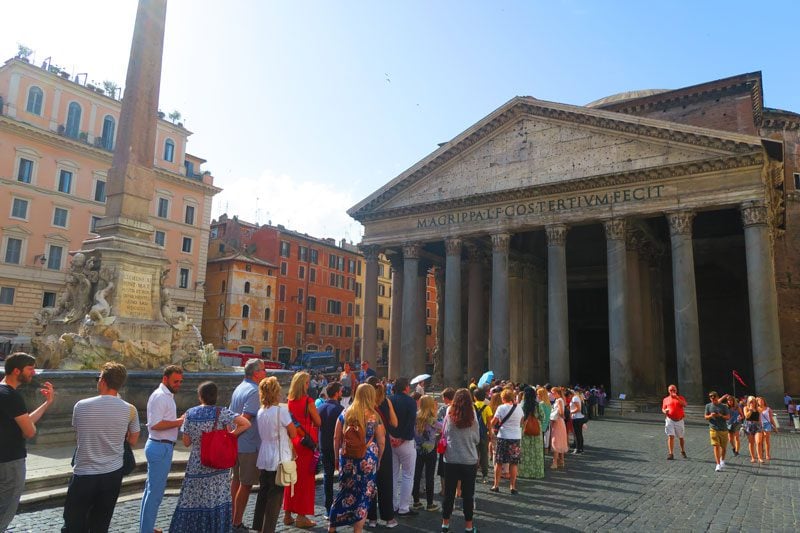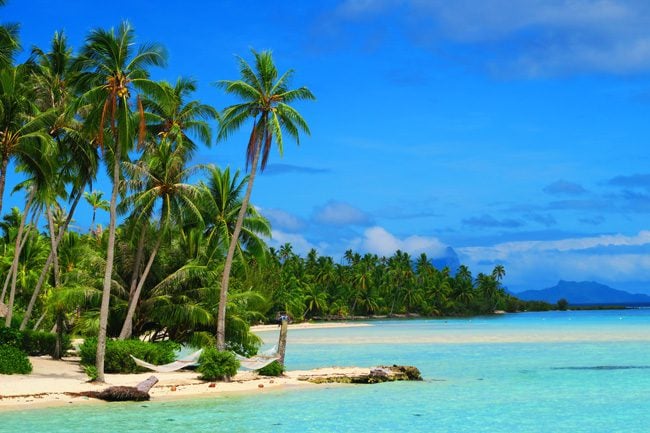The Best Festival You’ve Never Heard Of: Tahiti’s Heiva Festival
Every year during July, one of the longest-running festivals in the world kicks off in one of the world’s most stunning destinations. There’s a good chance you’ve never heard of the Heiva Festival in Tahiti, but it’s a huge deal in a sleepy island nation that rarely stresses over anything. Reviving the ancient Polynesian culture, the Heiva is a month-long colorful celebration of people who are proud of their heritage. Let’s see what all the fuss is about and get to know the ins and outs of the Heiva Festival in Tahiti.
Heading to French Polynesia? In-depth island guides to all 5 archipelagos await you, including sample itineraries and essential travel tips & tricks.
Tahiti, Tailor Made!
The Islands of Tahiti are among the last places to be colonized by mankind, 118 islands, each with its unique personality.
Get expert advice and assistance with planning your trip to the destination where tropical dreams come true!
What is the Heiva Festival?
Heiva comes from the Tahitian words hei and va, meaning “to assemble” and “community places”. It’s a time of celebration, a national gathering showcasing the very best of the Polynesian culture – by far the most exotic I’ve met on my extensive visits to the South Pacific Islands. It is a month-long celebration of life in paradise, a time to respect the past and share the rich Polynesian heritage with the outside world. And why not add a bit of competition to the flavor? I had the pleasure of attending festival events during my month-long honeymoon in French Polynesia.
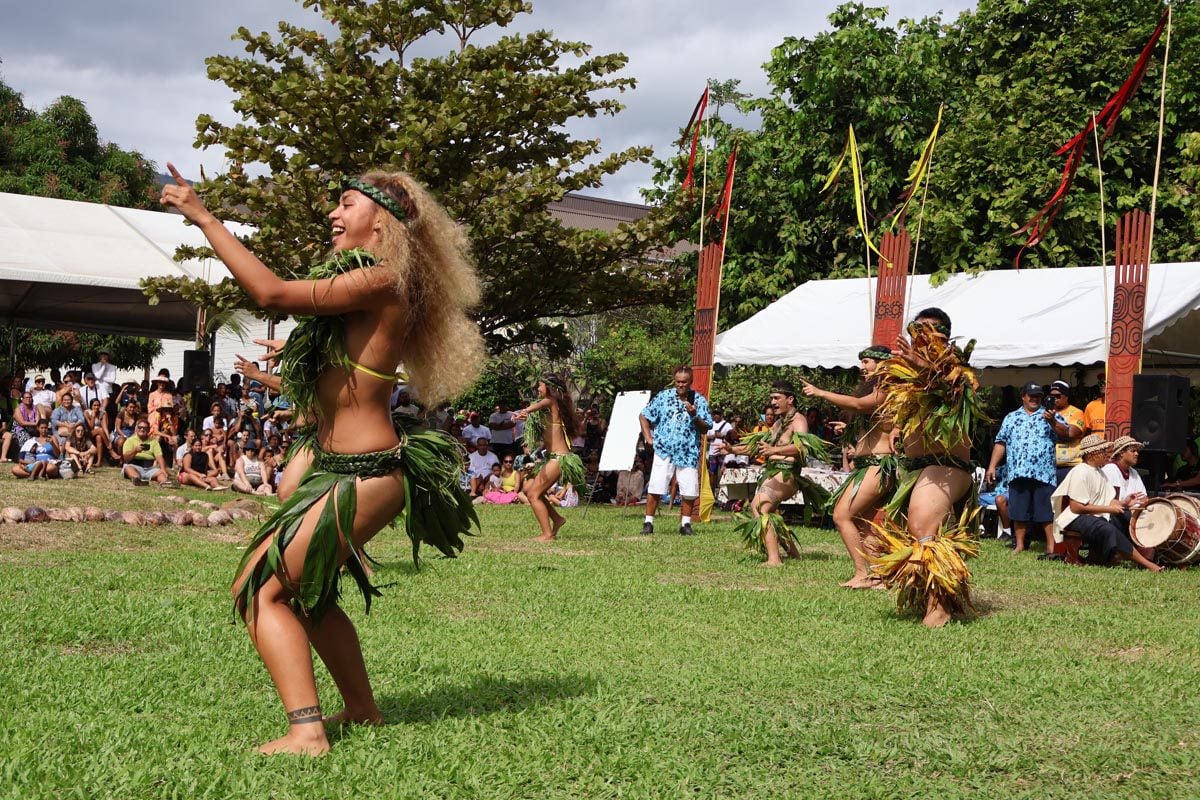
The Heiva is also a competitive festival, bringing together thousands of singers, artists, dancers, and athletes from French Polynesia’s five archipelagos and islands in the Polynesian Triangle, who compete as individuals and teams for the ultimate bragging rights. As you might already guess, the festival is a really big deal.
When is the Heiva Festival?
The Heiva Festival begins in June in the outer islands and kicks into high gear with the main festival in Tahiti, beginning at the start of July. The festival then runs for about three weeks, with events and festivities on some days during this period. The final schedule of the Heiva Festival in Tahiti is only released sometime during May, a testament to how “local” this festival is, unlike global celebrations such as the Carnival in Brazil.
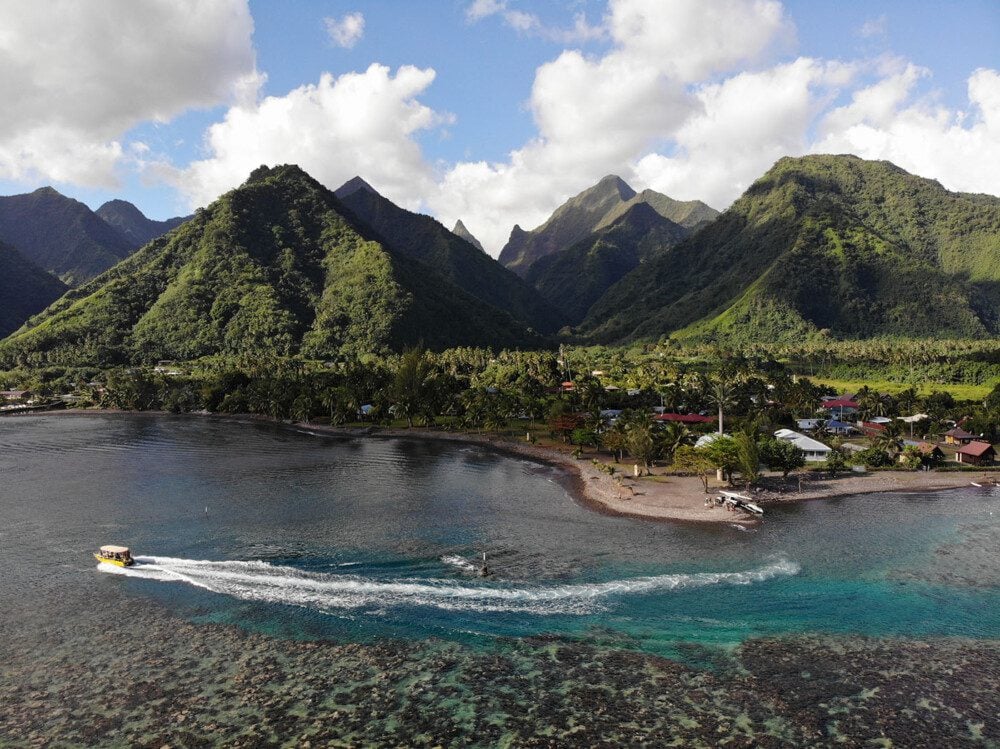
The Heiva in Bora Bora is also worth mentioning. Though it’s low-key compared to Tahiti’s festival, it’s much grander than what you’ll experience on the other islands. Teams representing some of the resorts and other competitors gather at a small stadium by the lagoon in Vaitape Village.
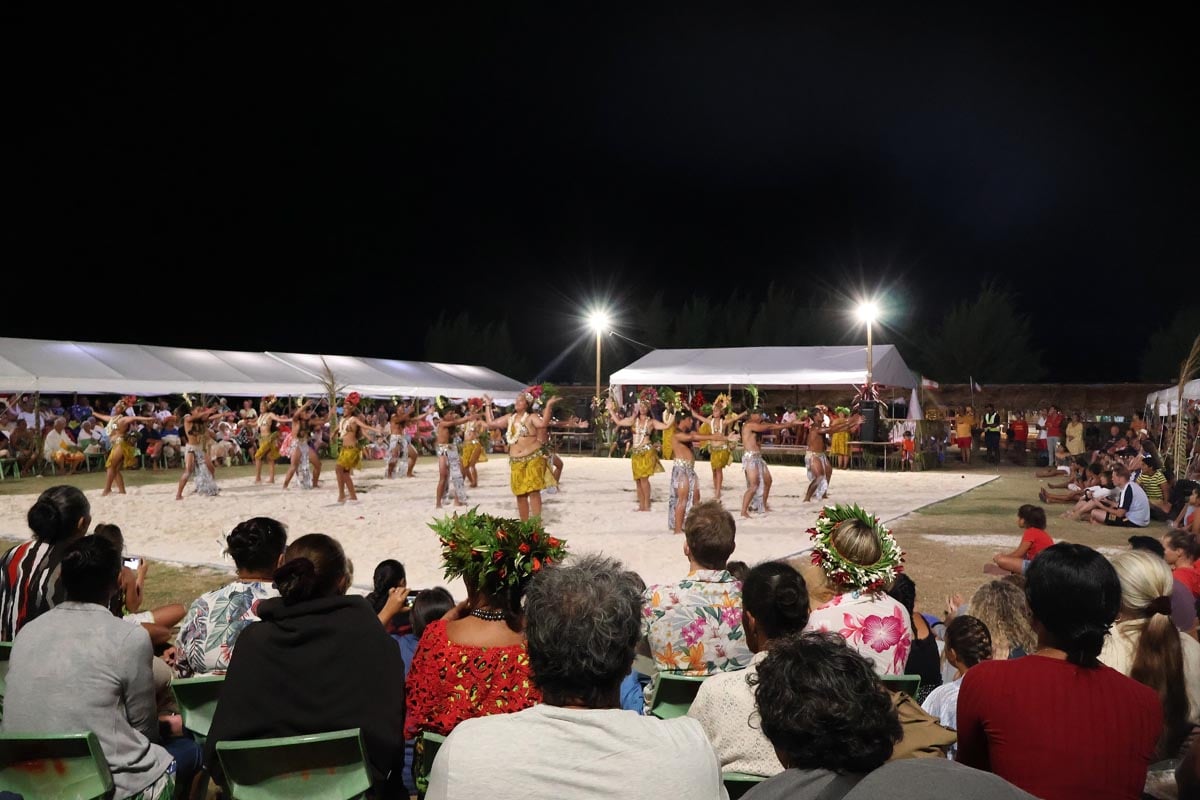
Origins of the Heiva Festival
The Heiva is no ordinary festival, but we must take a trip back in time to fully comprehend its importance in modern Tahitian society.
European arrival
When the first Europeans set foot on the Islands of Tahiti in 1767, their oral and written accounts describe a carefree and sexually expressive society where emotions were freely (and quickly) expressed and where song, dance, and music played a key part in everyday life. Dancing to the Polynesians – Ori I Tahiti – can be equated to an Englishman grabbing pints with the lads – it’s just a part of the culture!
With the arrival of the first European explorers, adventurers, scientists, and whalers soon followed. With them came the missionaries – Protestants at first – who were not too happy with all these erotic dances, lack of clothing, belief in gods, and the list goes on. Moreover, the missionaries arrived at a time when local society was in turmoil due to diseases “imported” by the new “guests” along with the introduction of alcohol, tobacco, and firearms.
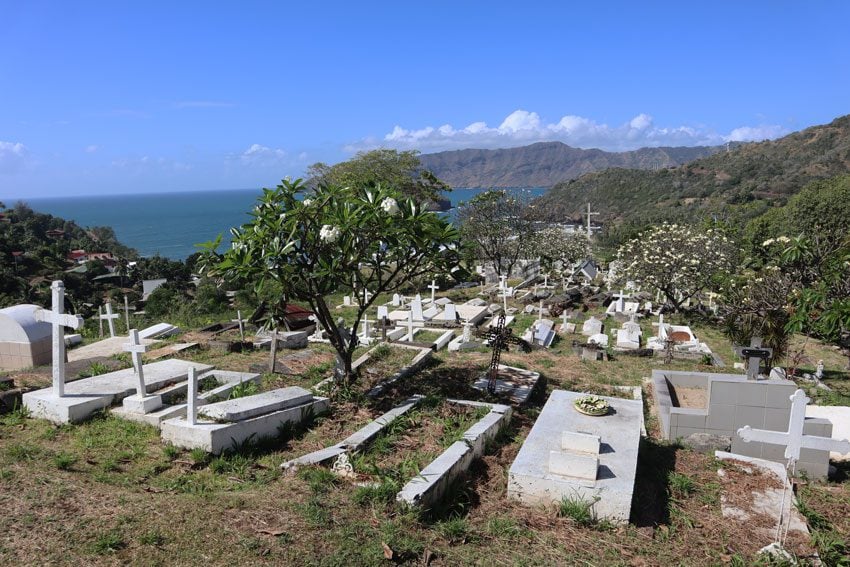
Missionaries gained extraordinary influence through a “deal” with King Pomare II of Tahiti in the early 19th century. They harnessed this power for good acts such as curbing alcoholism, introducing literacy, and banning cannibalism, but they also forbid the old religion, encouraged the destruction of stone temples, and erased the very same art forms that were the pillars of society, such as dancing and tattooing. It was church time for Tahitians!
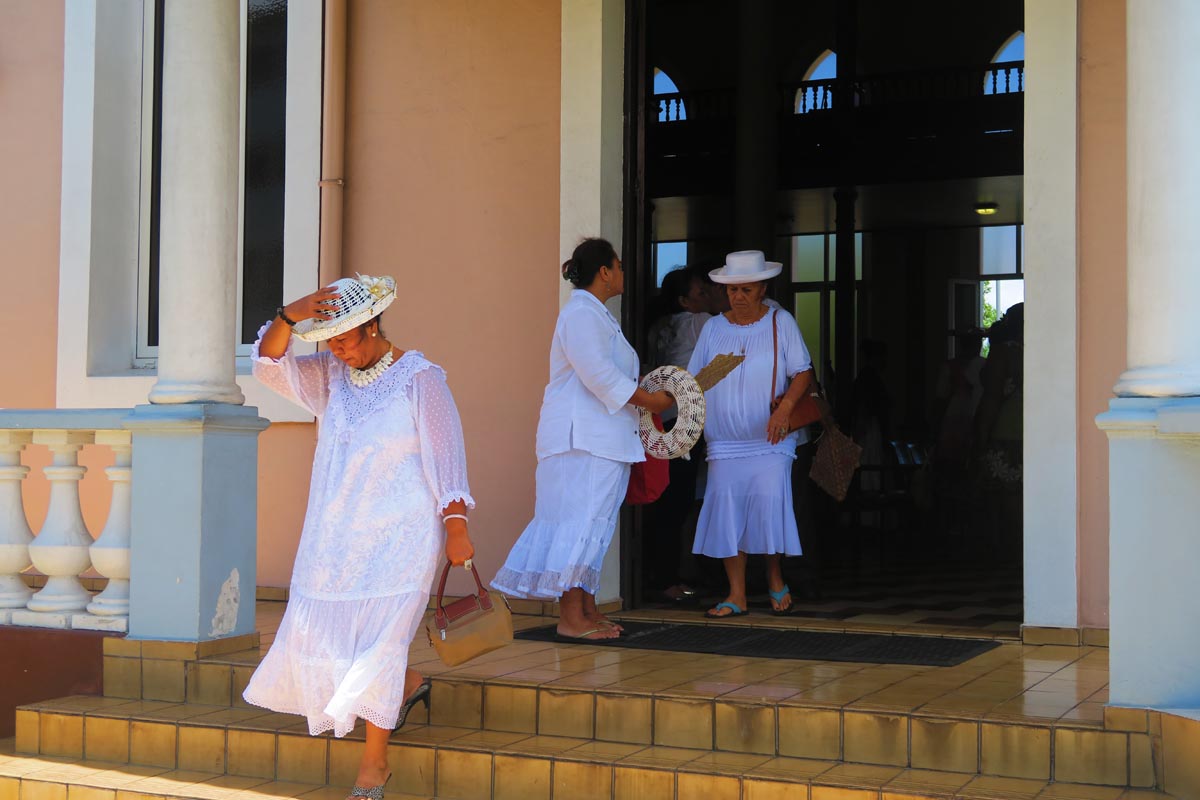
Under French rule
Things started to change when Tahiti was annexed by France in 1881. To further erase any Protestant influence (the French were Catholic), the French permitted Tahitians to celebrate their culture through song, dance, and sporting competitions but only during one day of the year – the July 14 Bastille Day (the de facto French independence day celebration), so that there wouldn’t be any mistake with regards to who needs to be thanked for this “act of generosity”. Voila, the Tiurai Festival, was born, the early version of the Heiva!
Fast forward to 1977. Tahitians in French Polynesia now have greater autonomy, and it is decided to fully revive the festivities of old (autre fois). In 1985, the Heiva as we now know it was born, replacing the Tiurai festival and officially symbolizing the comeback of traditional Polynesian culture!
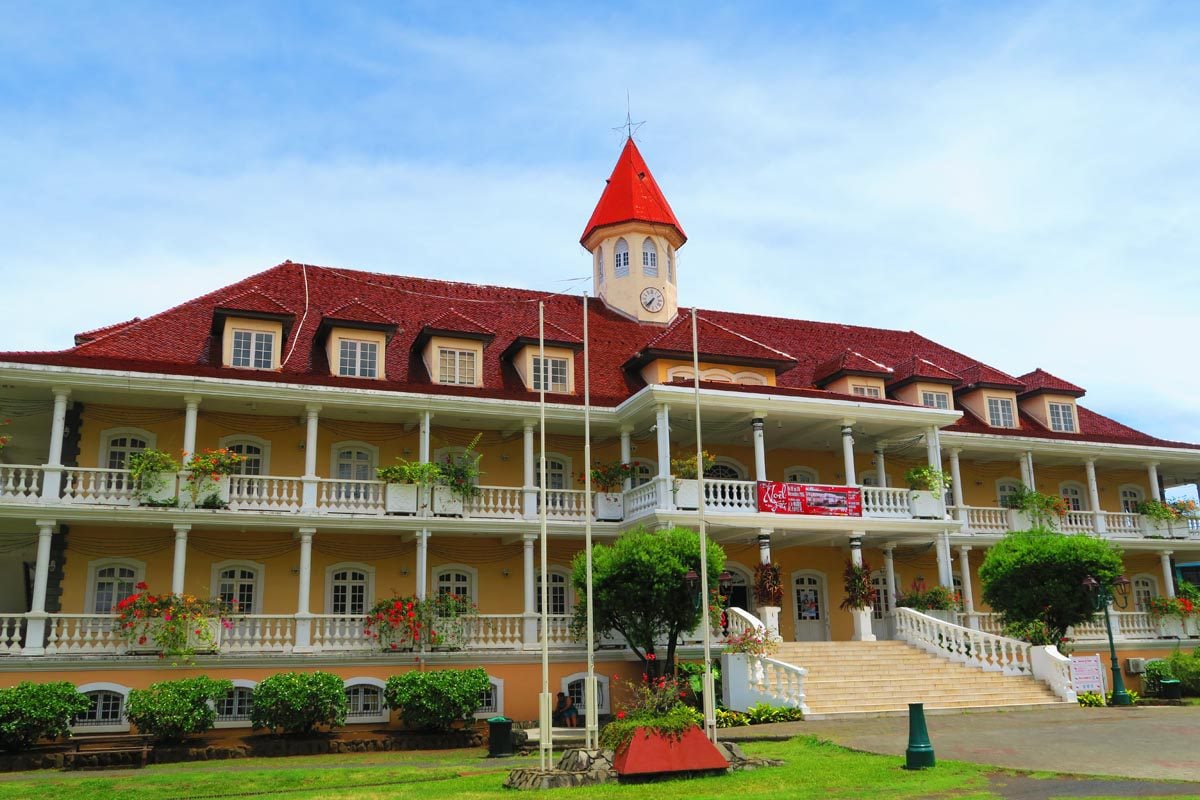
Where does the Heiva Festival take place
The Heiva Festival begins in June on the outer island and culminates in the main festival in Tahiti at the start of July. The evening song and dance competitions take place in Papeete’s lagoon front outdoor stadium, next to the Maison de la Culture. This is “the main event” and what makes the competitive festival so well known. Papeete also hosts small festivities, such as crafts and agricultural exhibitions, horse racing, and the fruit-carrying race at the Paofai Gardens.
The Museum of Tahiti and Her Islands in the affluent suburb of Punaauia along Tahiti’s sunny and dry west coast hosts the traditional sports competition. This is the second most important event, after the evening song and dance competitions. The canoe racing events vary in location, sometimes launching Pirai or Pointe Venus. Lastly, the Heiva Festival also features cultural shows that will be described in greater detail in the next section.
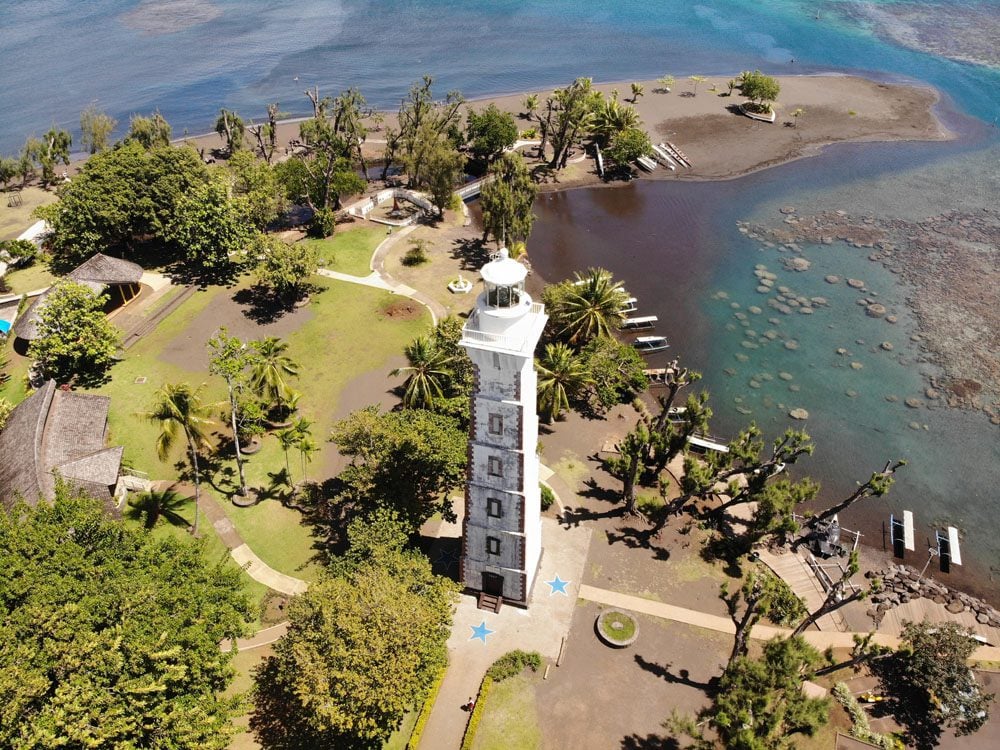
What to see at the Heiva Festival
The Heiva Festival in Tahiti includes shows, exhibitions, and competitions. Most events are free to enter but for some, you need to purchase tickets in advance. The Heiva in the outer islands is much smaller in scale and usually includes just the dance competitions.
Evening Song & Dance Competition
The evening song and dance competition is the main event in the Heiva Festival in Tahiti. This occurs at the outdoor stadium next to Place Toata in Papeete, usually on Thursday, Friday, and Saturday evenings during the first two weeks of July. The following week, there’s a winner’s gala over the weekend.
The song and dance competition comprises different acts, including dance and choir performances varying in style and costume, each inspired by French Polynesia’s diverse archipelagos and their ancestral oral legends. Dance performances usually include about 100 dancers on center stage accompanied by a band of traditional instruments, primarily drums. Competitors practice for as long as six months in preparation for the Heiva Festival.
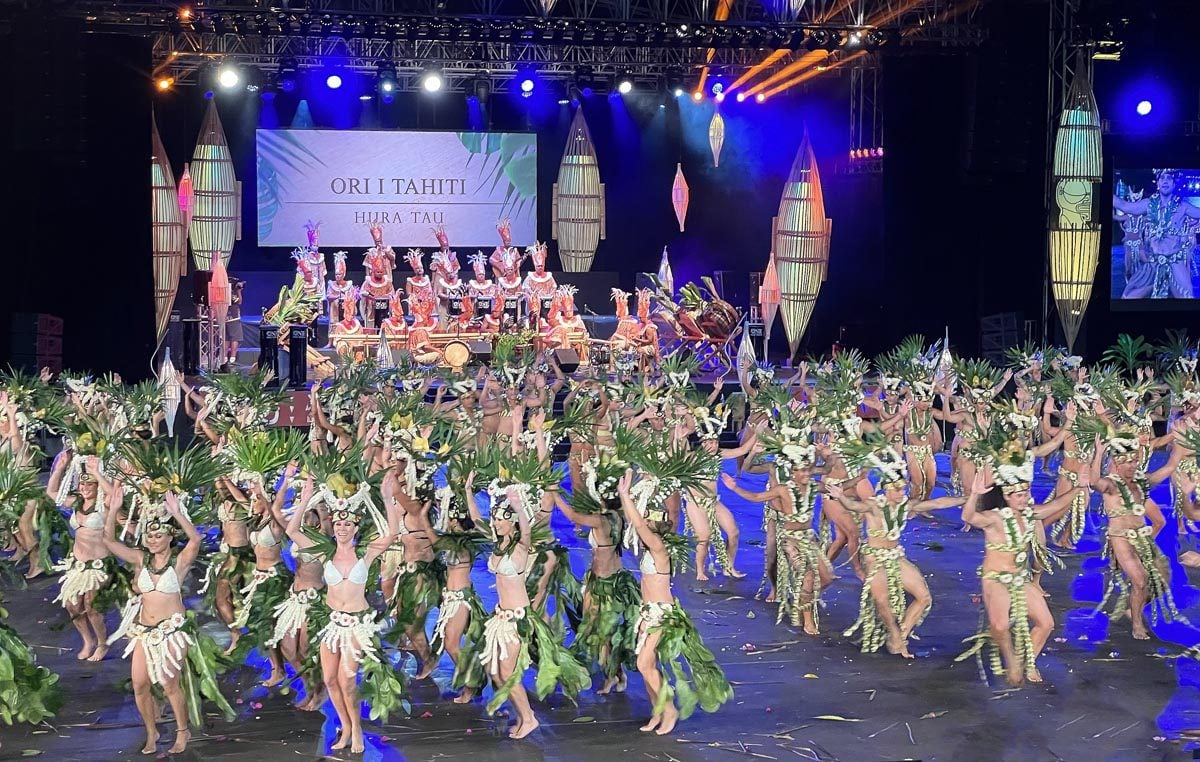
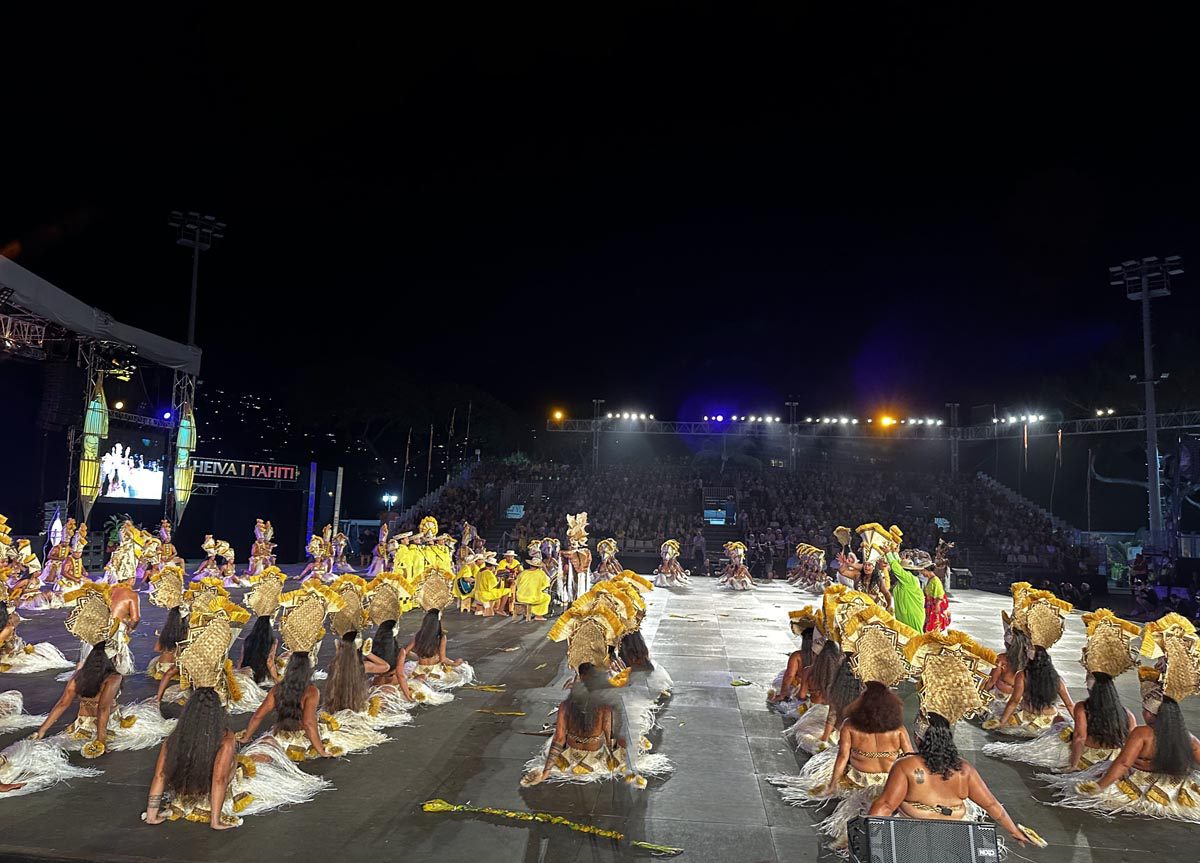
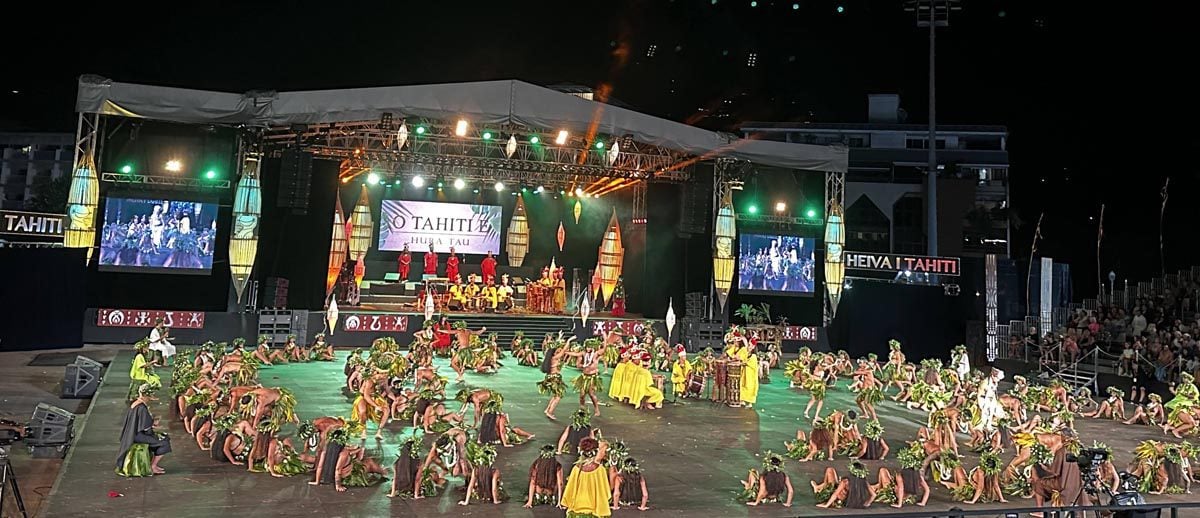
Costumes are elaborate with a high degree of attention to detail. Everything must be freshly prepared, just like in the good old days. It’s often the case where the heavenly scent of fresh gardenia flowers is carried even to the back rows of the stadium.
Here are a few useful tips for attending the Heiva’s evening song and dance competition.
- Regularly check the Heiva’s official website and the Maison de la Culture’s Facebook Page for schedule updates, notification about ticket sales, and asking questions via Messenger.
- As soon as tickets go on sale, purchase online with a credit card. The seats facing center stage are the best. Print your ticket or save a copy online for quick access and exit.
- Evenings begins at 18:30 and end very late. You can enter and leave between the acts but be sure to stick around for the ‘Ori Tahiti dances, by far the most thrilling Polynesian dance style.
- There are food and craft stalls outside the stadium. Lines are long as everyone tries to grab a bite between acts. It’s better if you grab dinner in Place Toata before.
- Stadium seats are notoriously tight and uncomfortable. It’s not uncommon to bring a small pillow to sit on.
- Photography of any kind is strictly prohibited and enforced.
- Street parking is very limited near the stadium. Get here early so you don’t have to park too far away. We found free street parking, but it wasn’t easy.
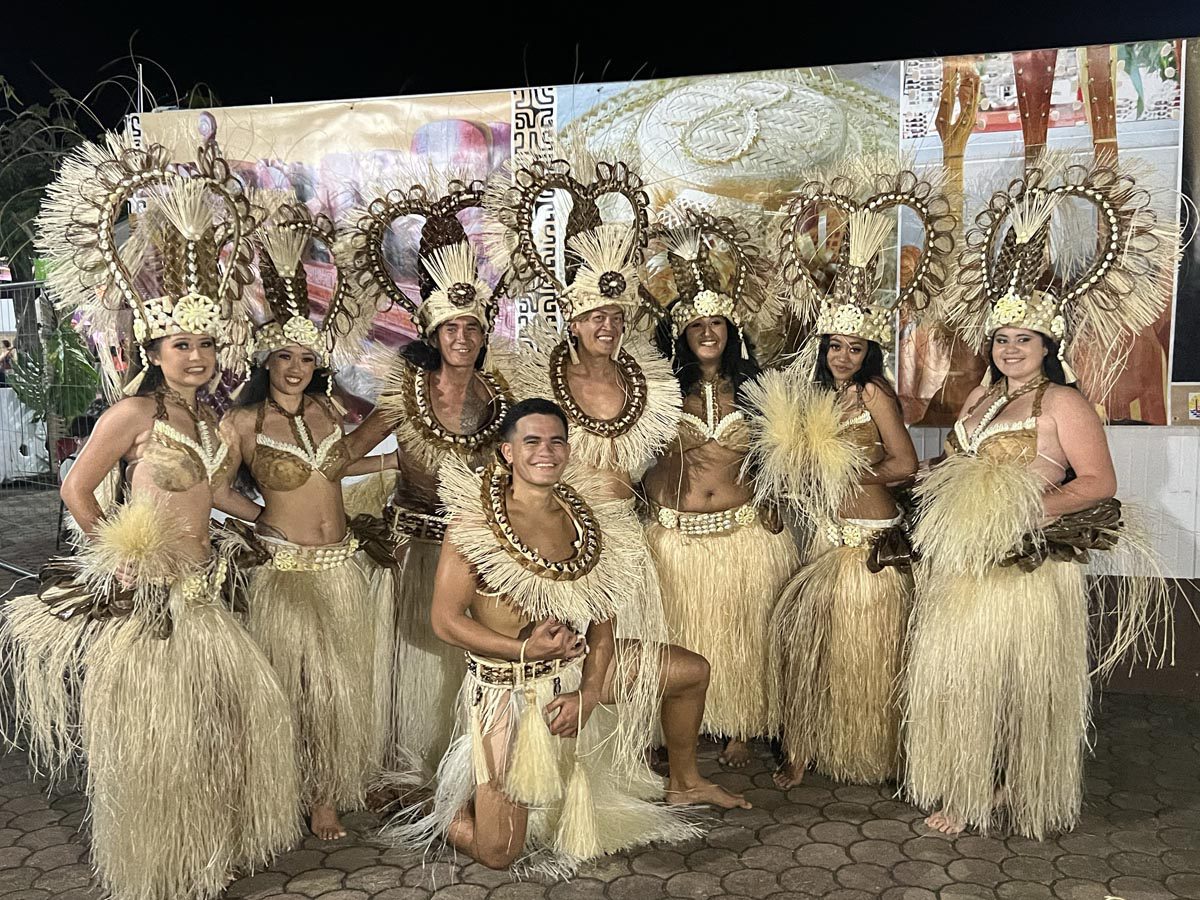
Traditional Sports Competition
The traditional sports competition is a highly attended and prized event in which Polynesian male and female athletes from across the Polynesian Triangle compete in events you’ll never see in any festival back home. Free to watch, most of the events take place on the lagoonside lawn of the Museum of Tahiti and Her Islands, except for the fruit-carrying race, which takes place in Papeete’s Place Toata, the horse racing, and the canoe races (varying venues).
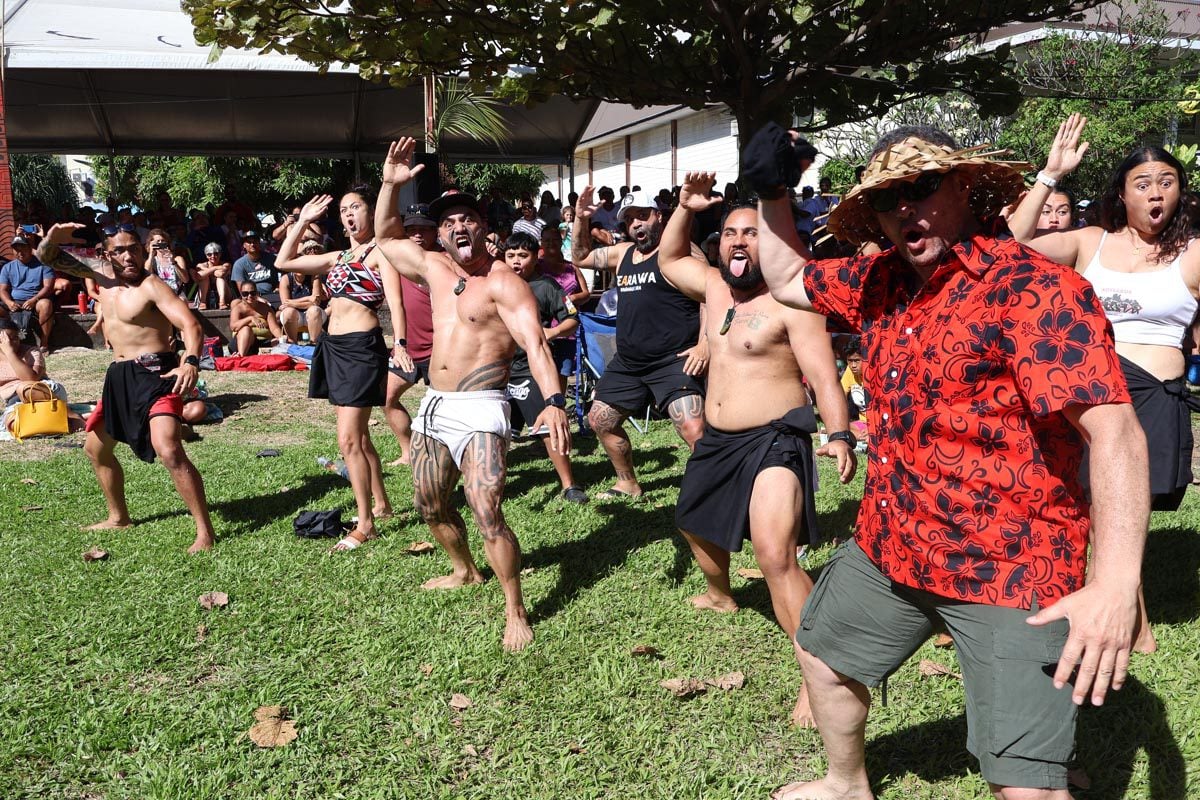
The events at the museum are part of full-day festivities that also include dance performances, musicians, and traditional Tahitian food on sale for lunch (ma’a Tahiti). You can come and leave as you wish, but follow the schedule to ensure you don’t miss the top events.
Here are a few notable mentions.
Coconut Tree Climbing
It looks easy, but it’s mighty tough to climb palm trees. Competing athletes show us how it’s done by racing up the tree trunk with ease and incredible speed.
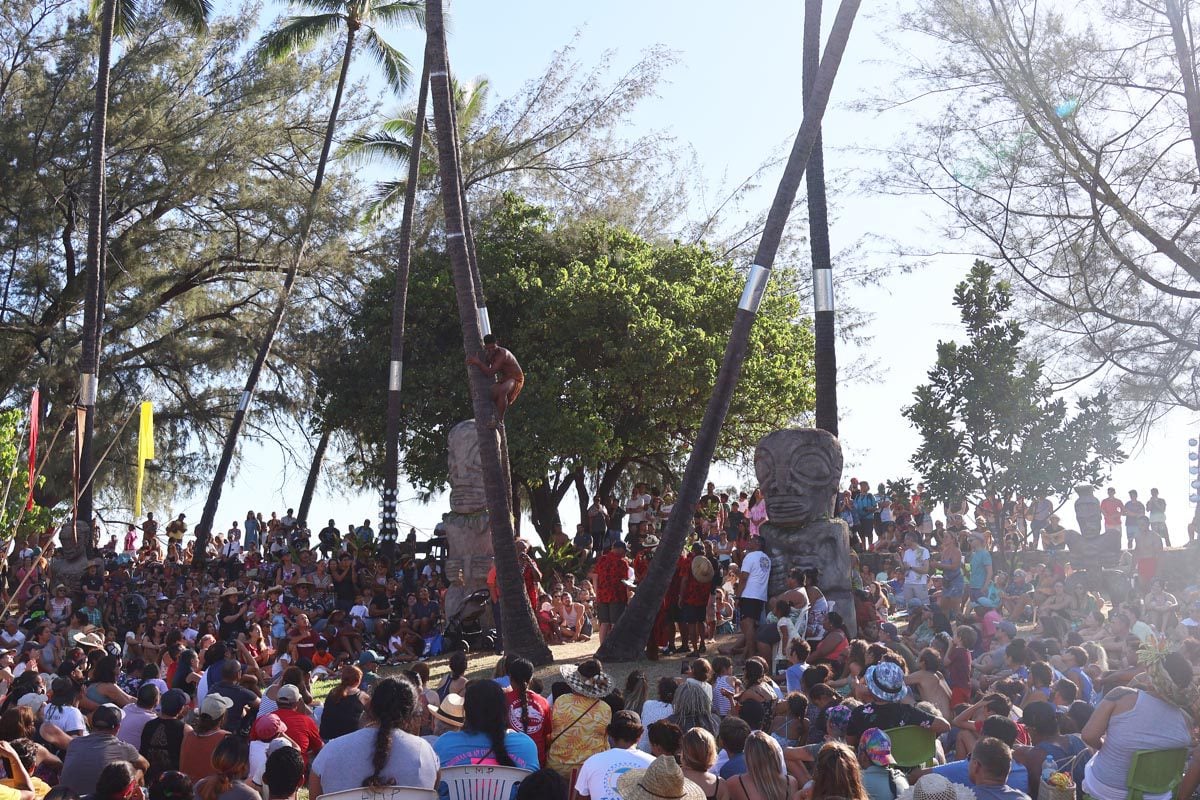
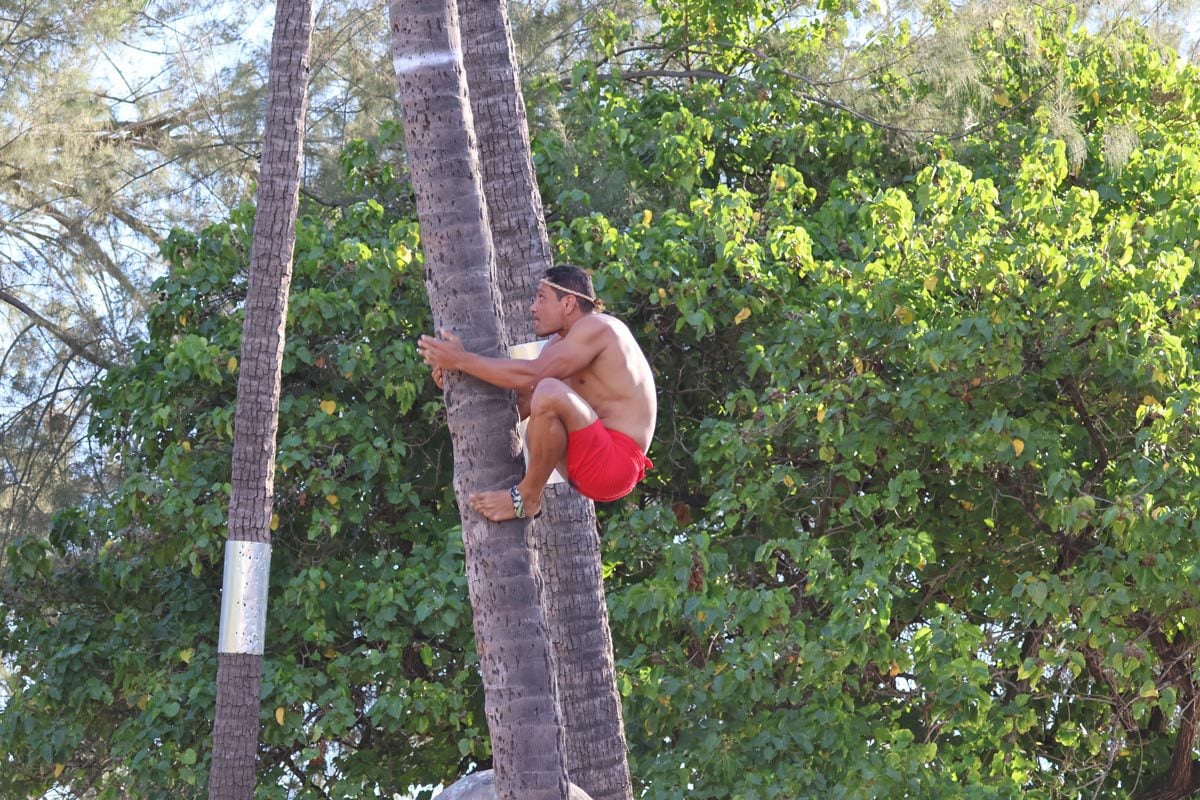
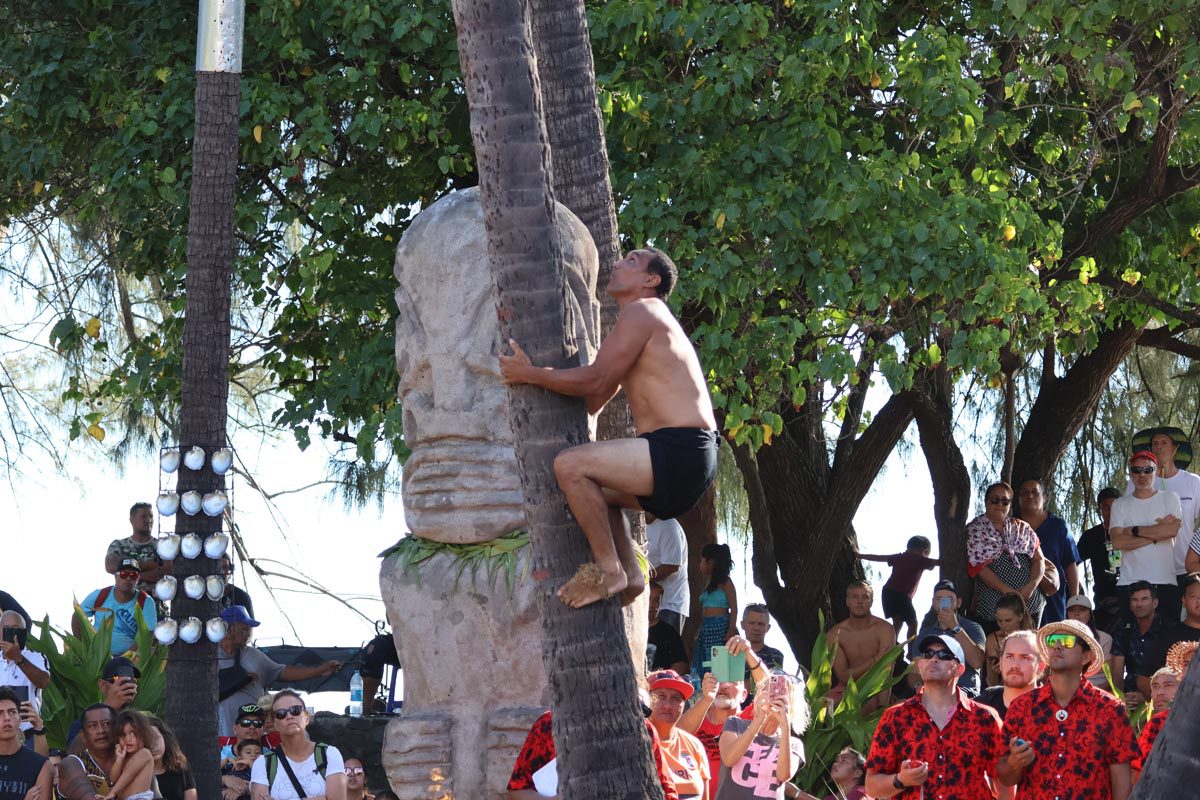
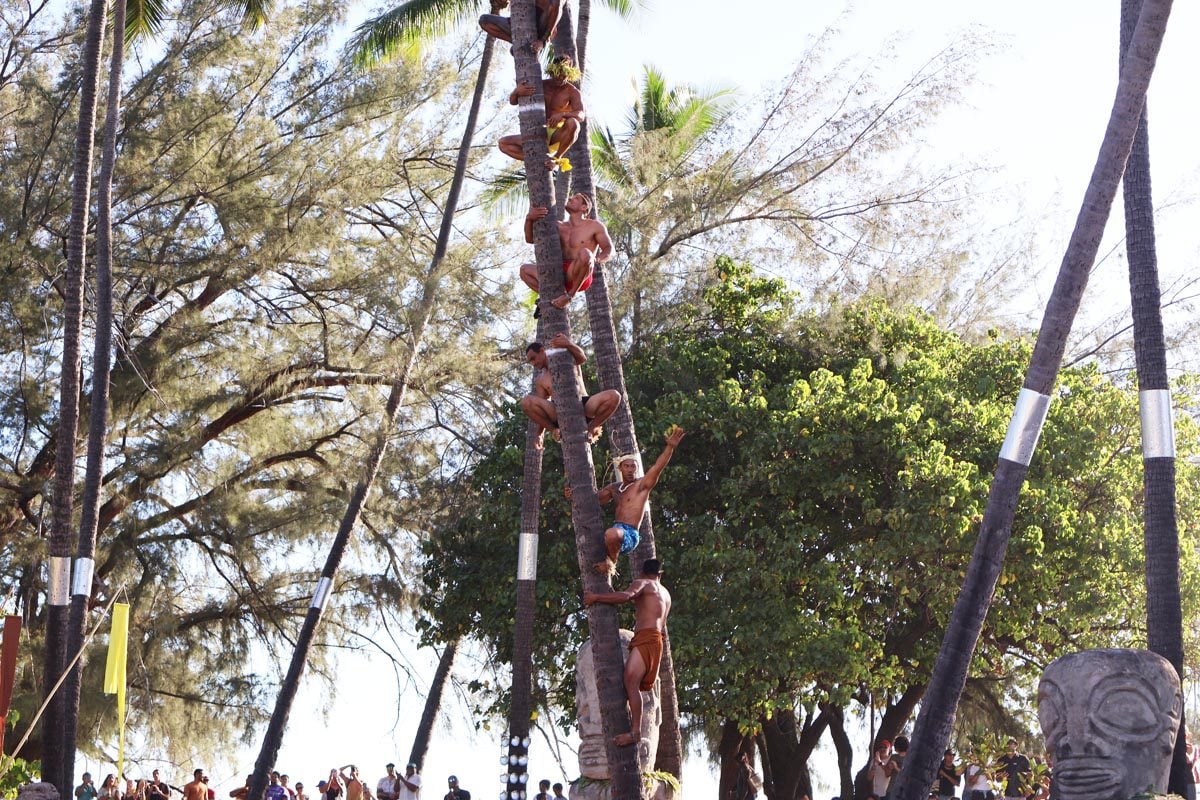
Javelin Throwing
This is a team event in which dozens of athletes use a special technique to hit a small coconut raised high in the air. Time is against them, with the winning team having pierced the coconut.
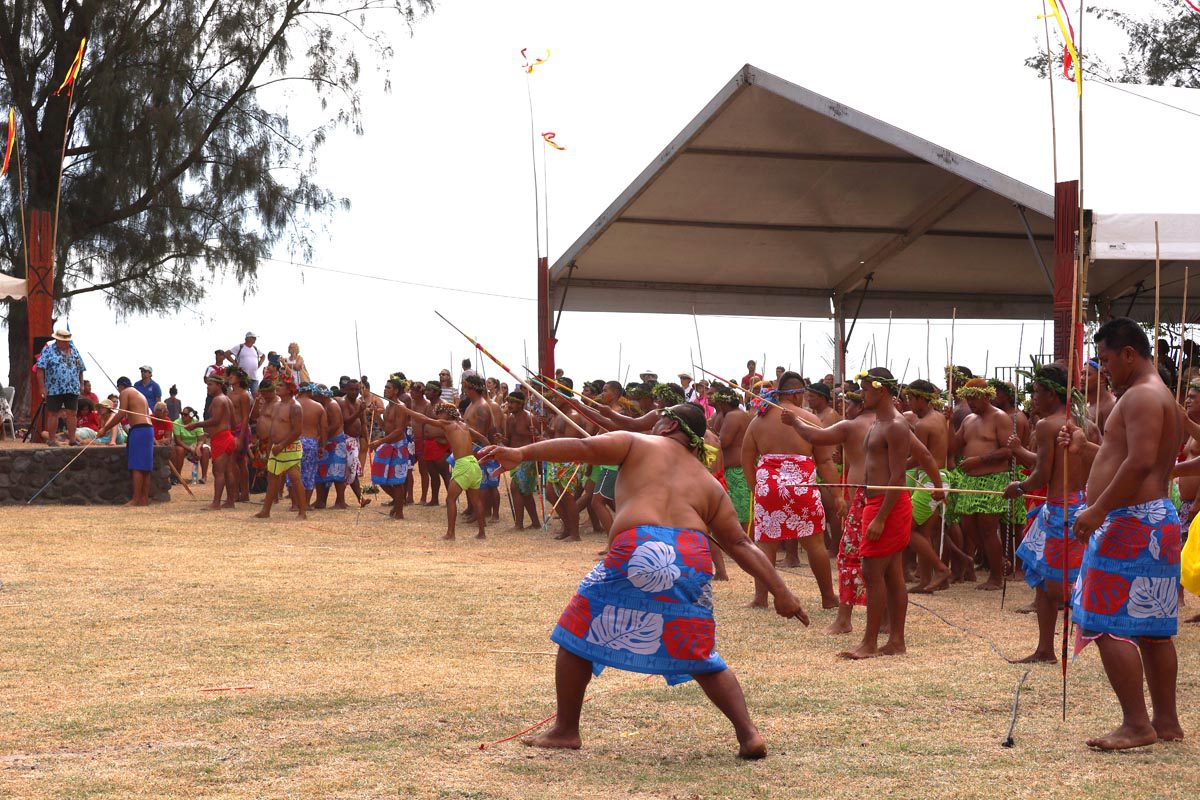
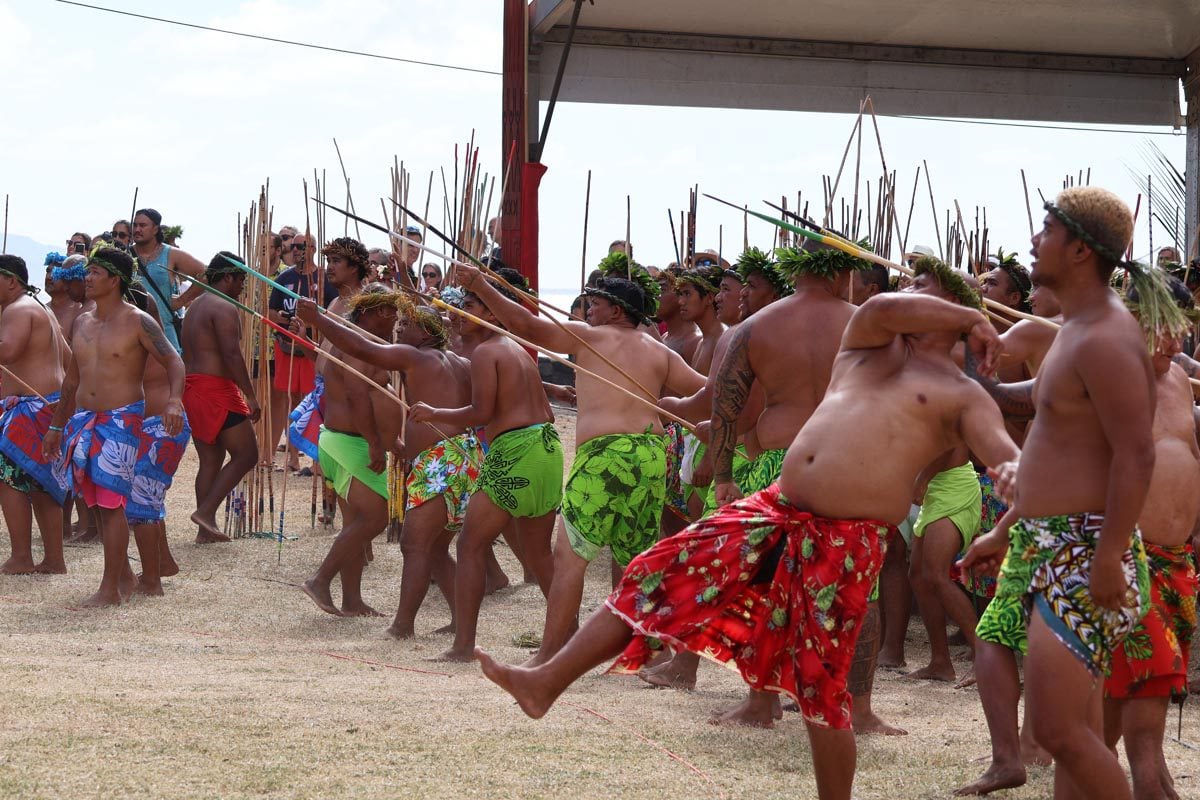
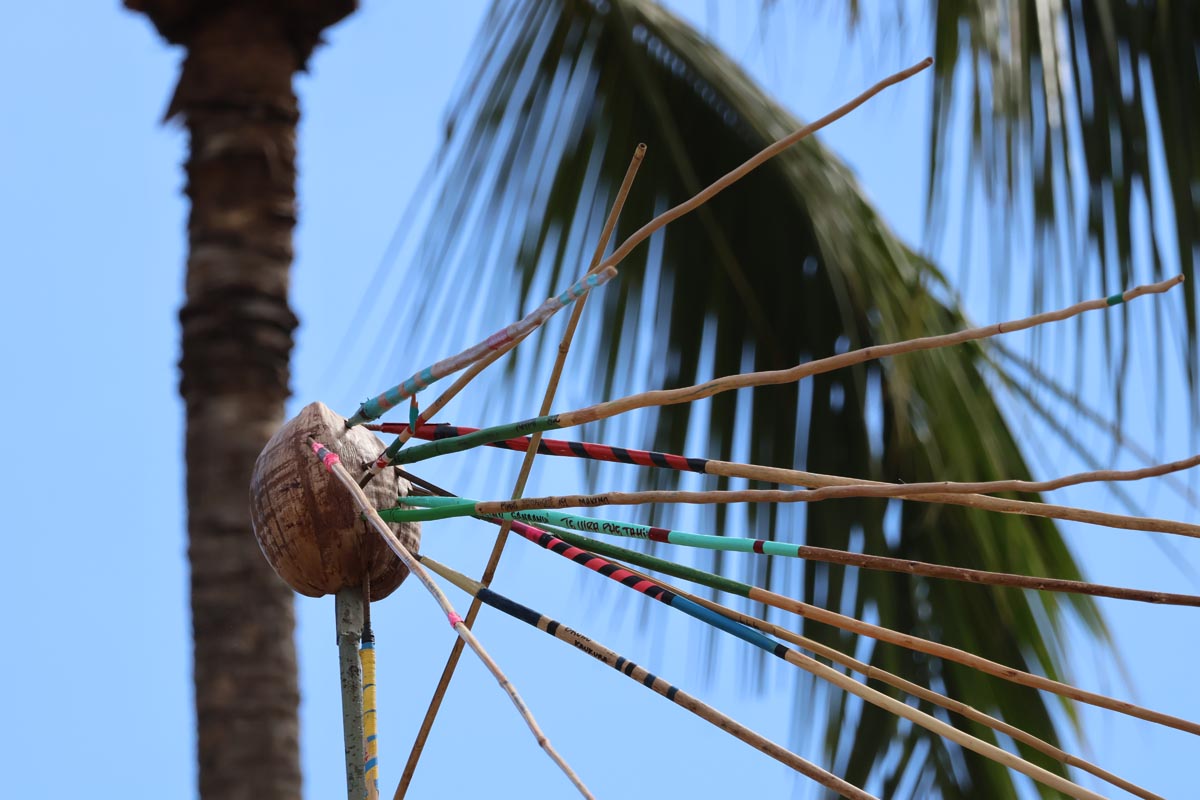
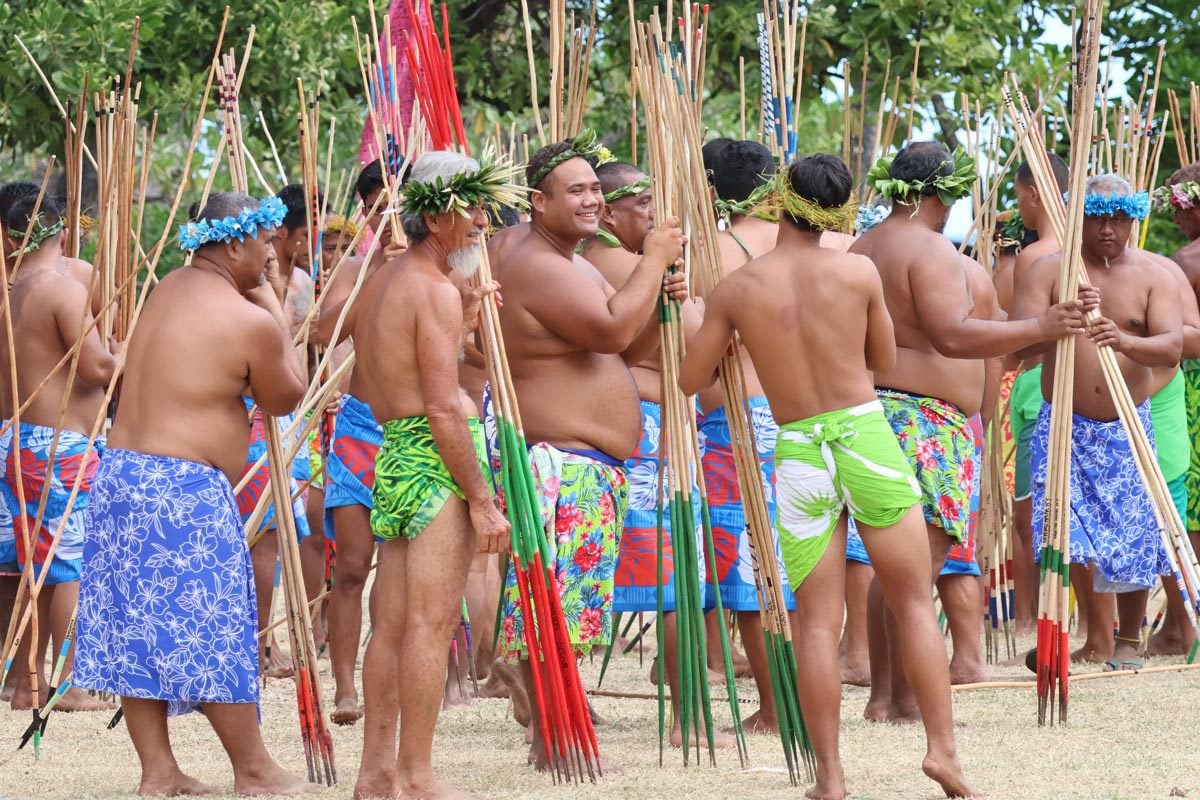
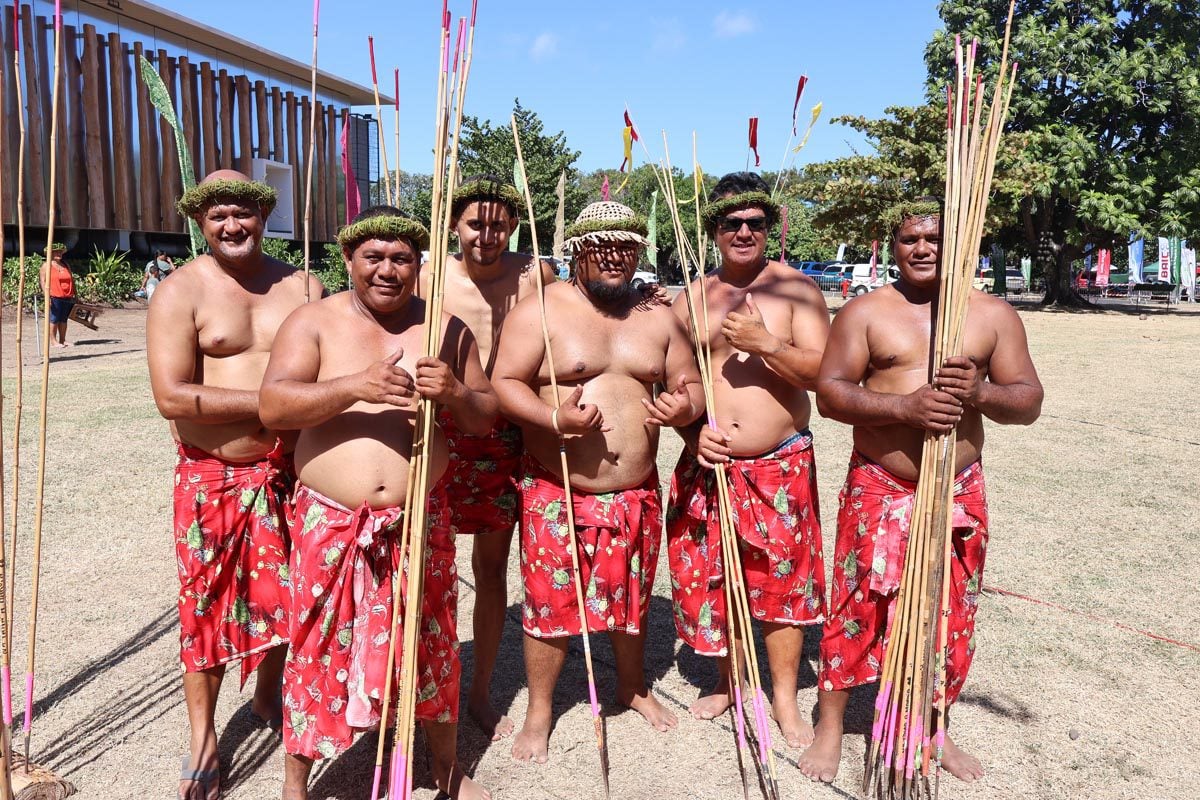
Copra Competition
The copra competition was the most intense and exciting traditional sports event we witnessed at the Heiva Festival in Tahiti. It’s perhaps also the toughest competition and closest to something some Polynesians do in real life. Copra is the process of extracting a coconut’s “meat”, drying it in the sun, and packing it in large sacks for shipment to oil-producing factories. Many families in French Polynesia rely on copra production for their income.
Athletes ranging from young to 50+ must first crack a pile of coconuts as quickly as possible using a small axe. They must then scrape the meat using a special tool and neatly put everything inside a special sack. This is a long and arduous event in which spectators from the athlete’s home island intensely cheer to push their representative across the finish line.
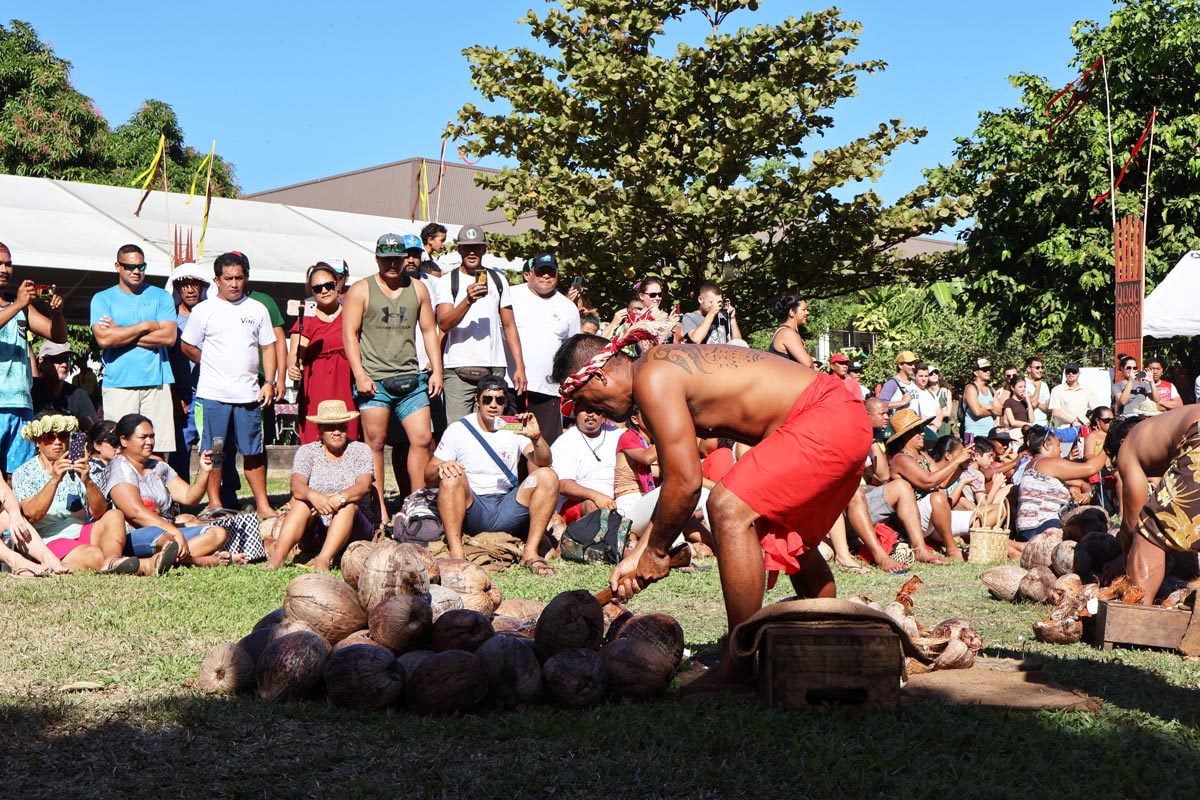
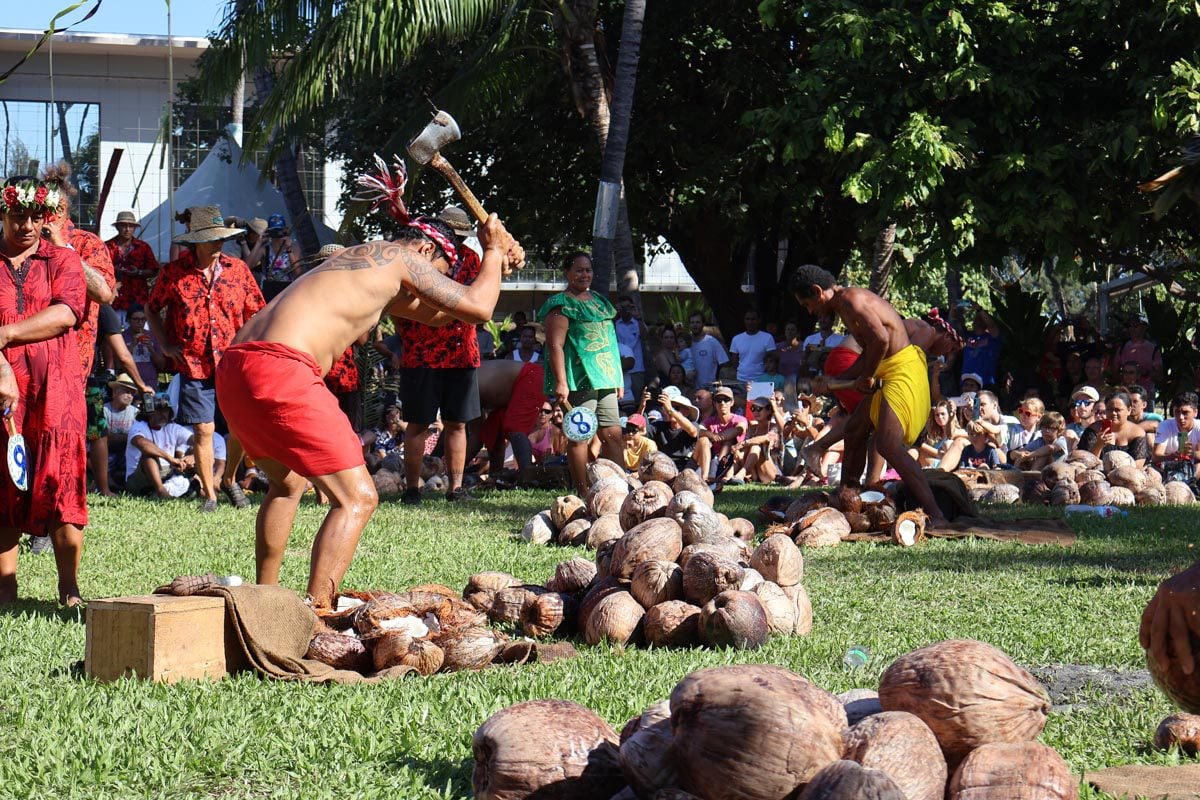
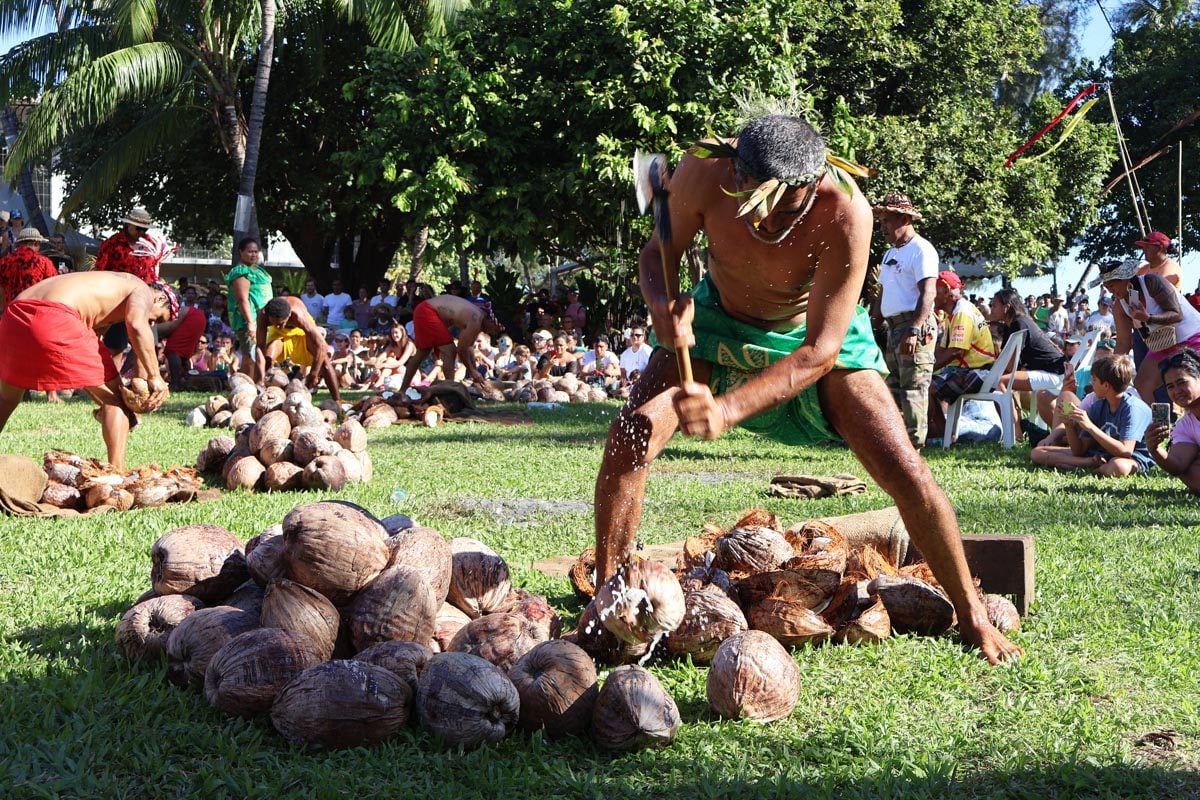
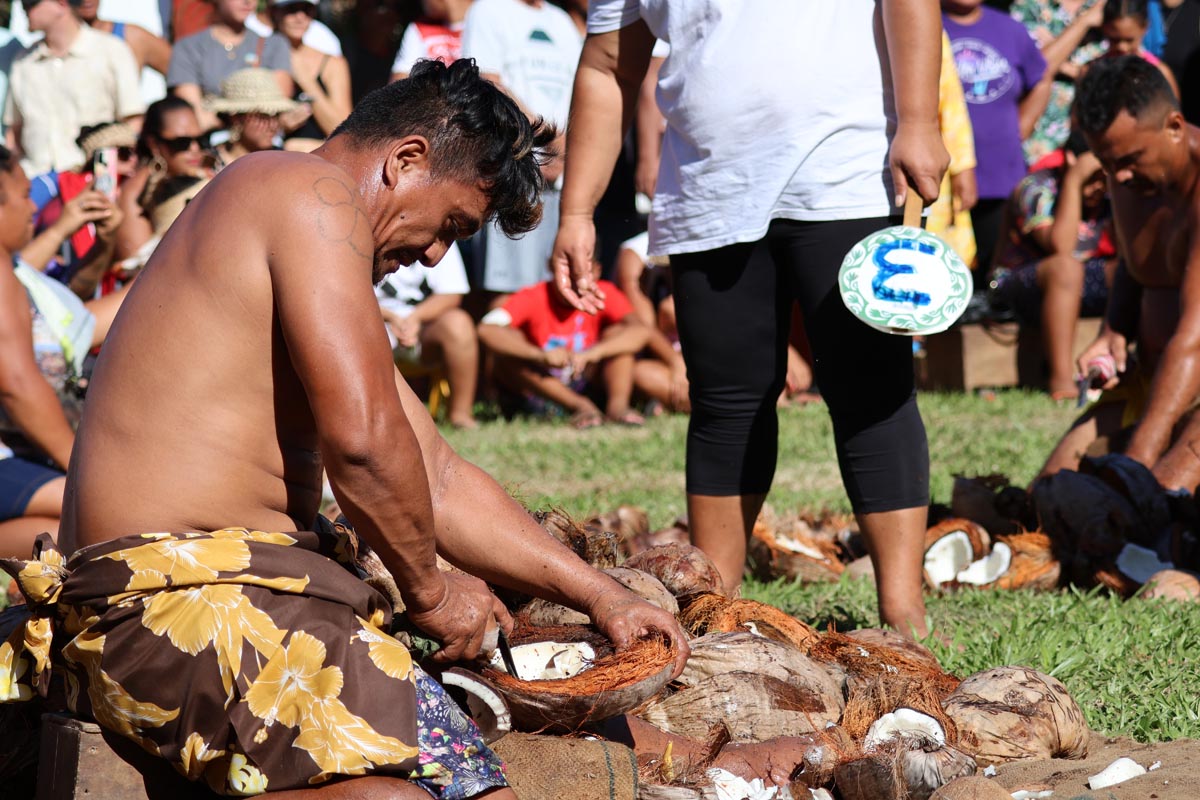
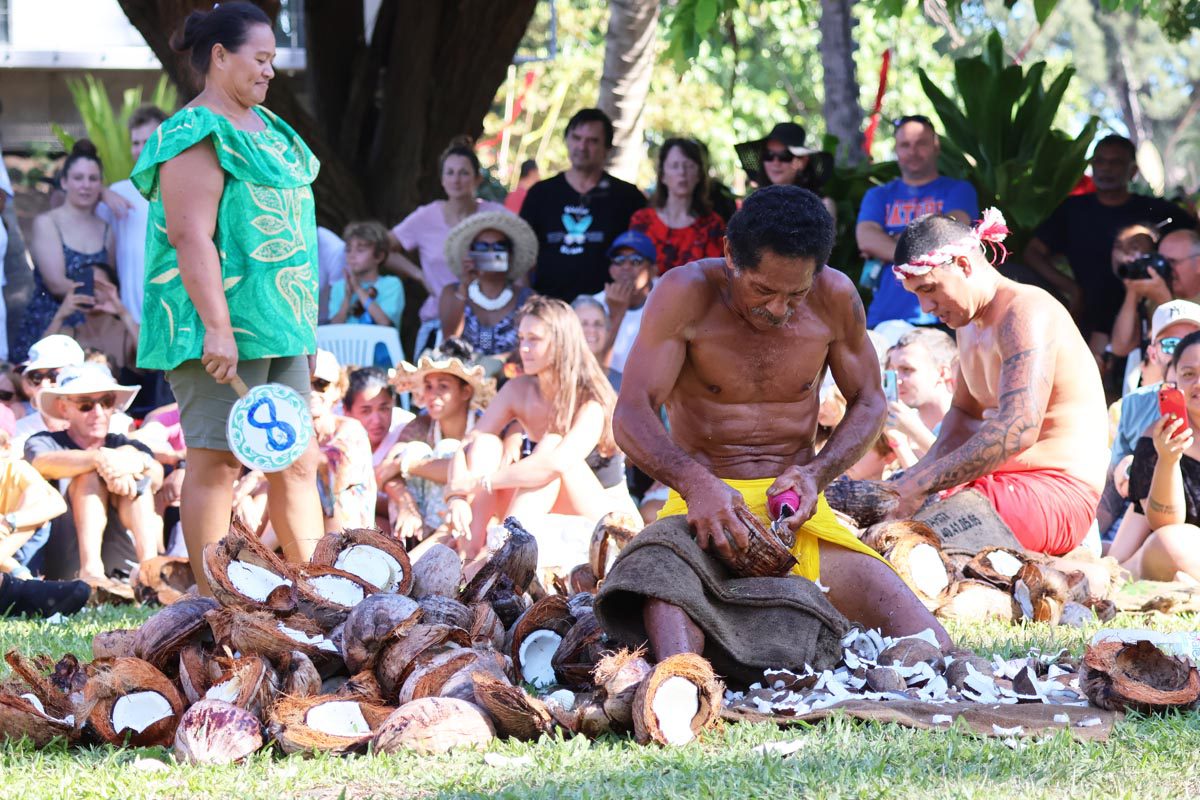
Stone Lifting
Divided into weight categories, male and female athletes must lift giant basalt stones weighing up to 160 kg. It sometimes takes four crew members to position a stone that one “giant” will shortly lift. It’s all done against the clock, and you don’t want to be the one to drop the heavy stone in front of hundreds of spectators and live TV.
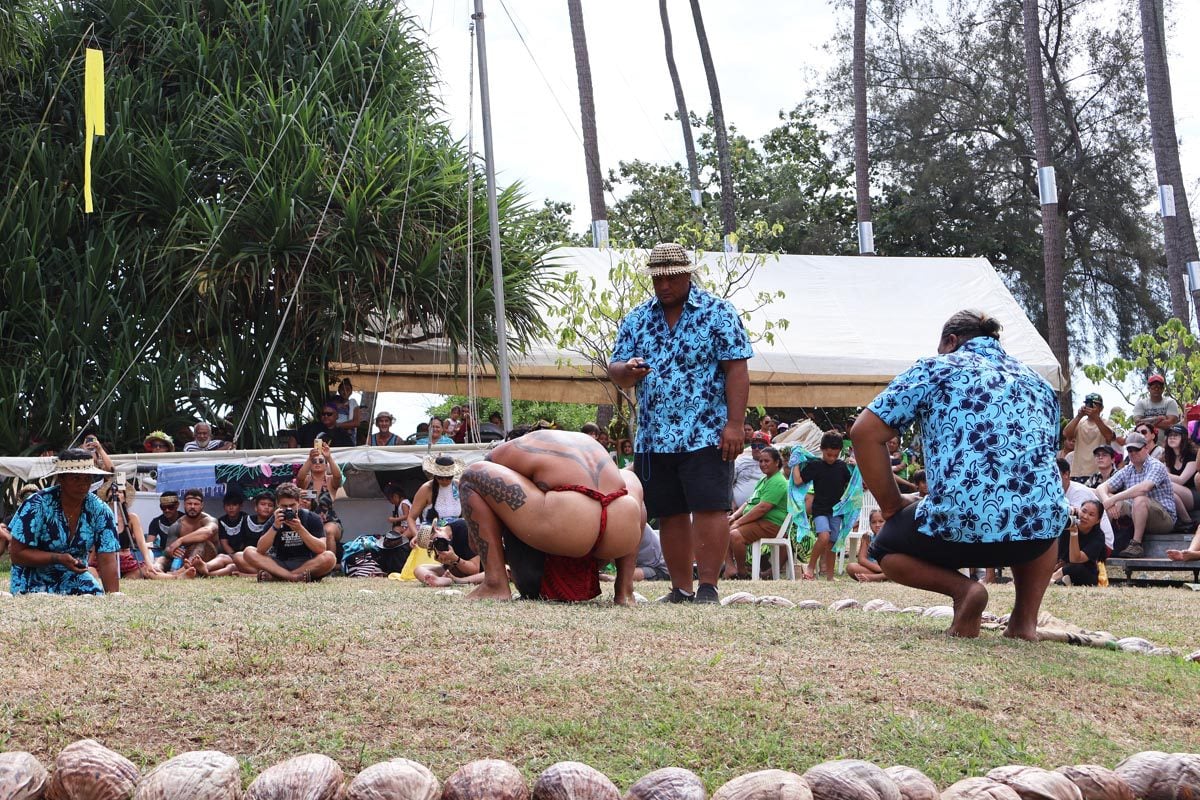
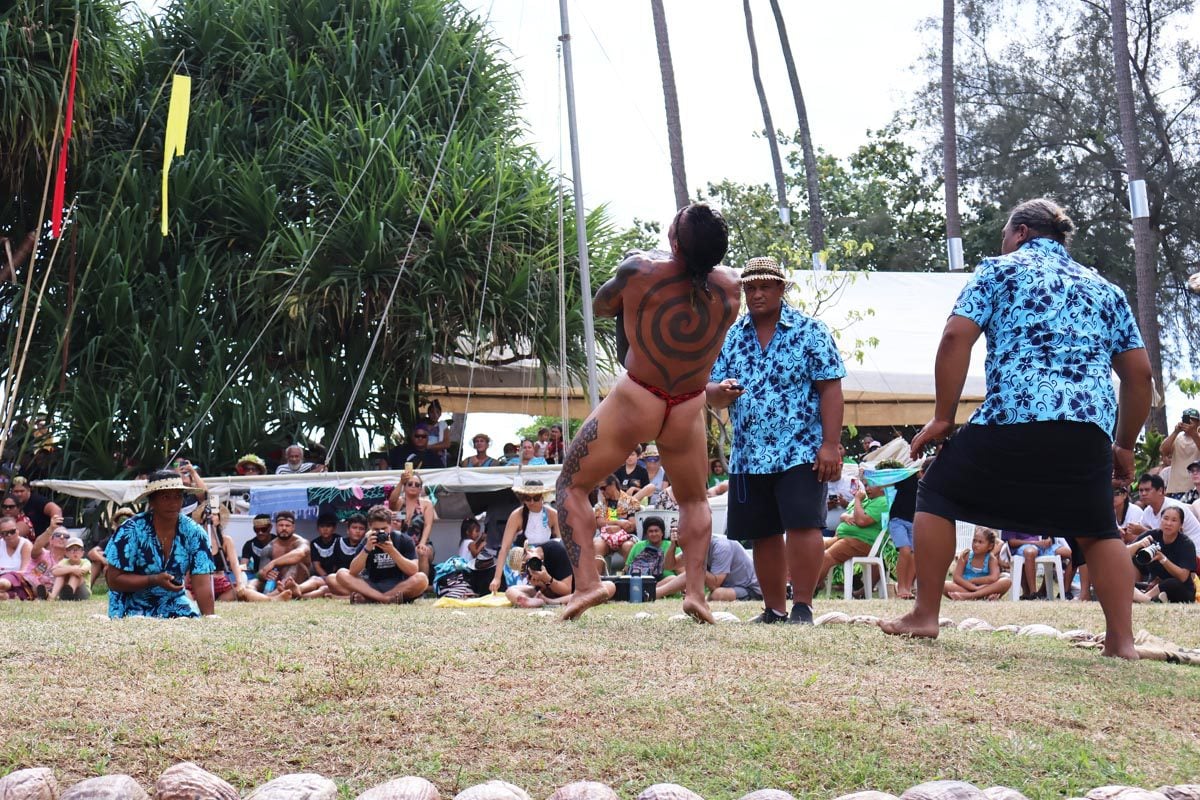
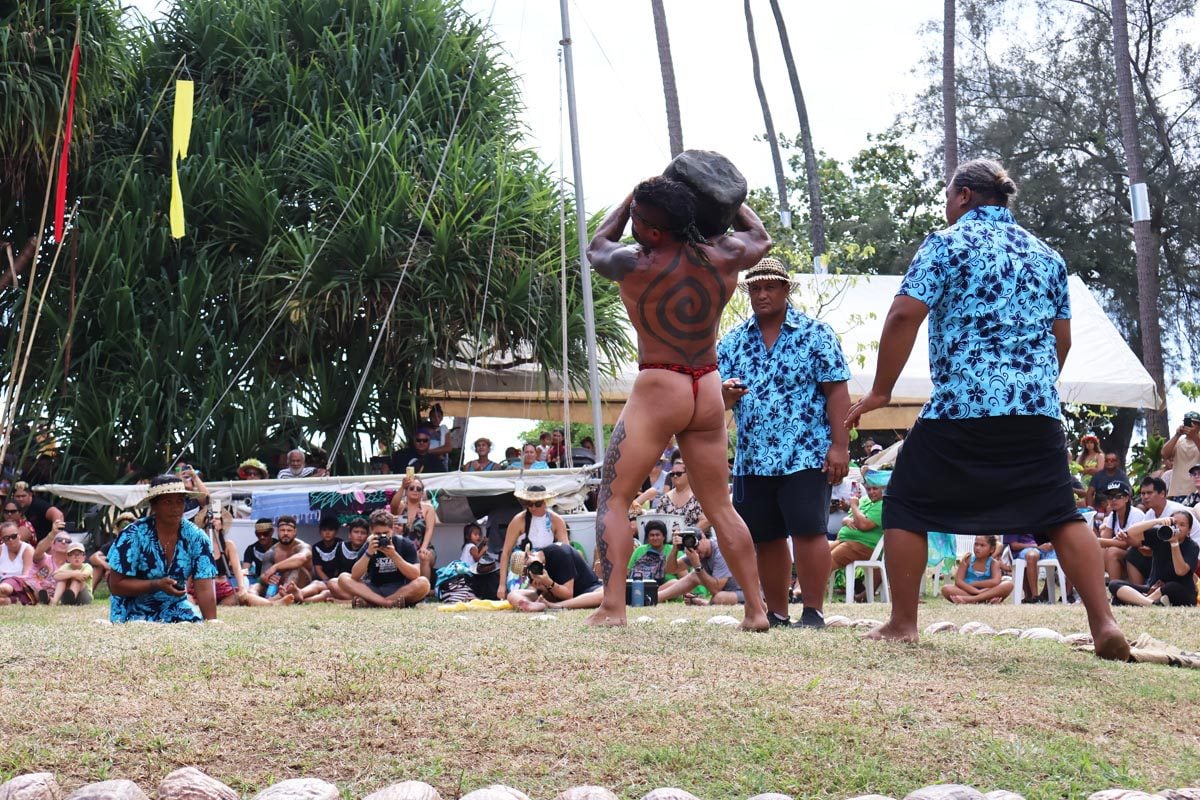
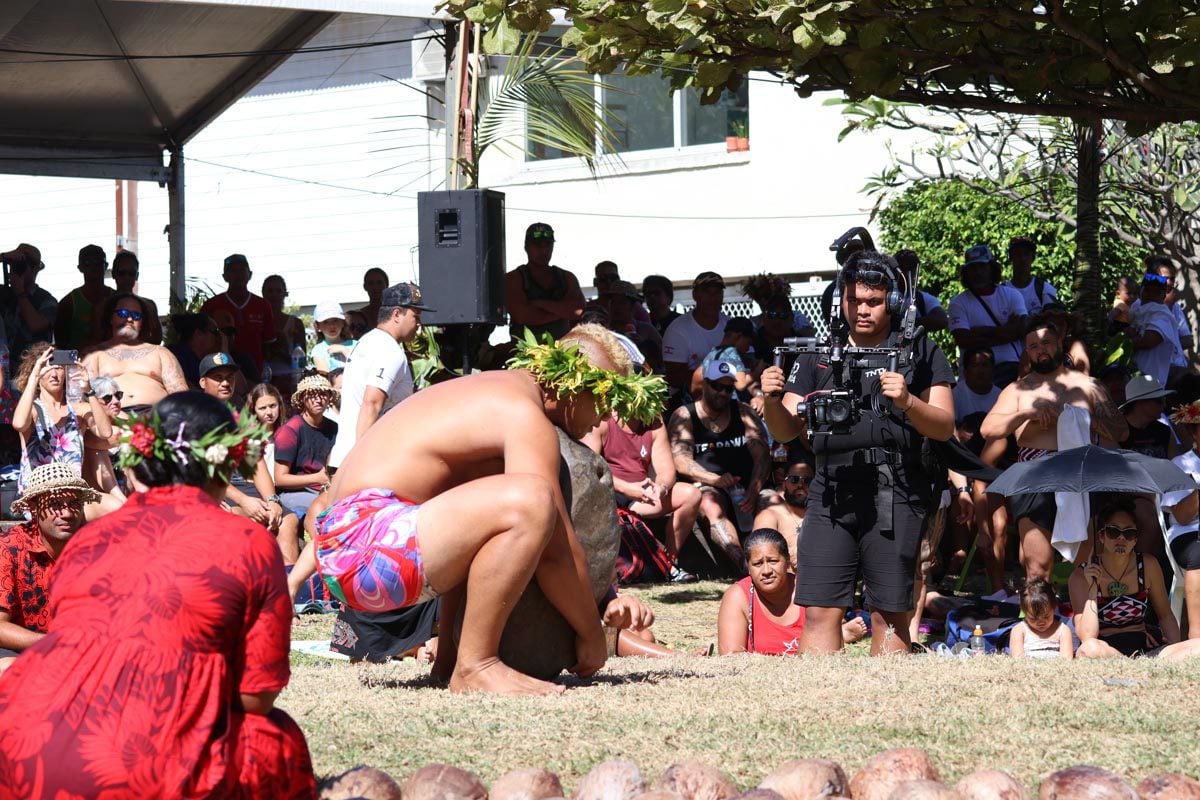
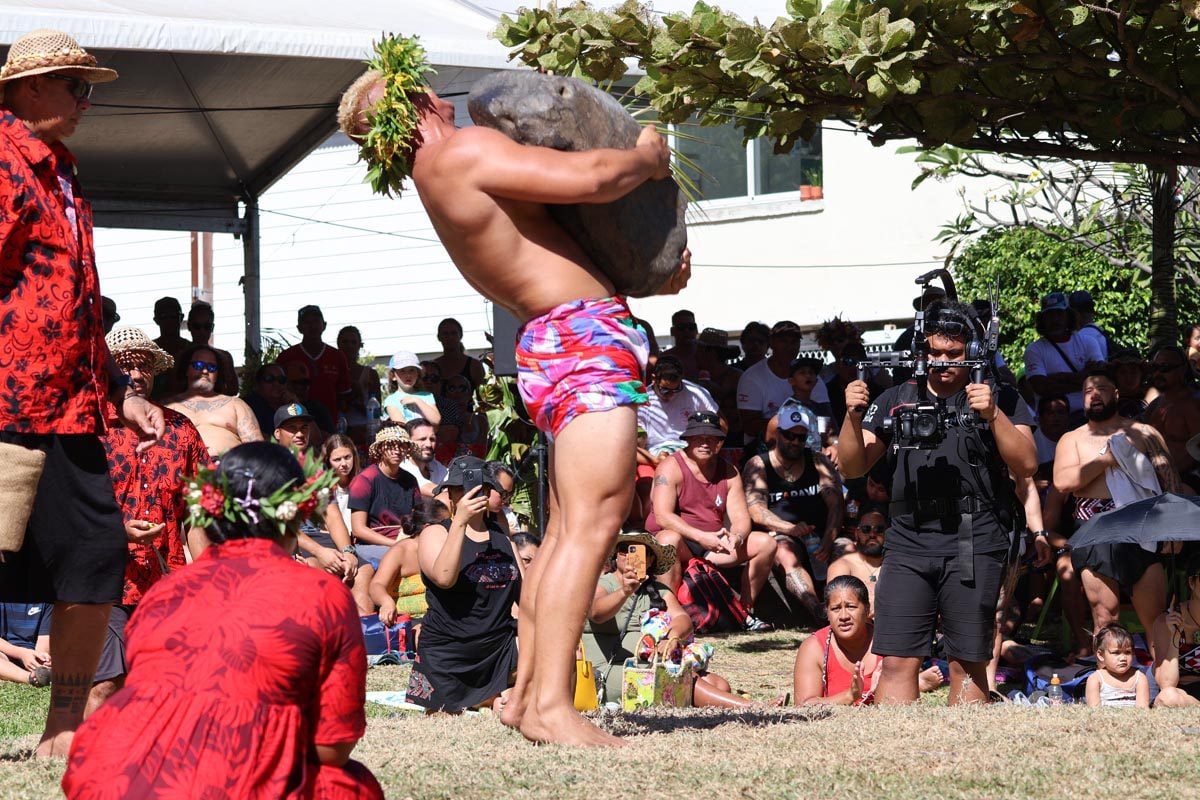
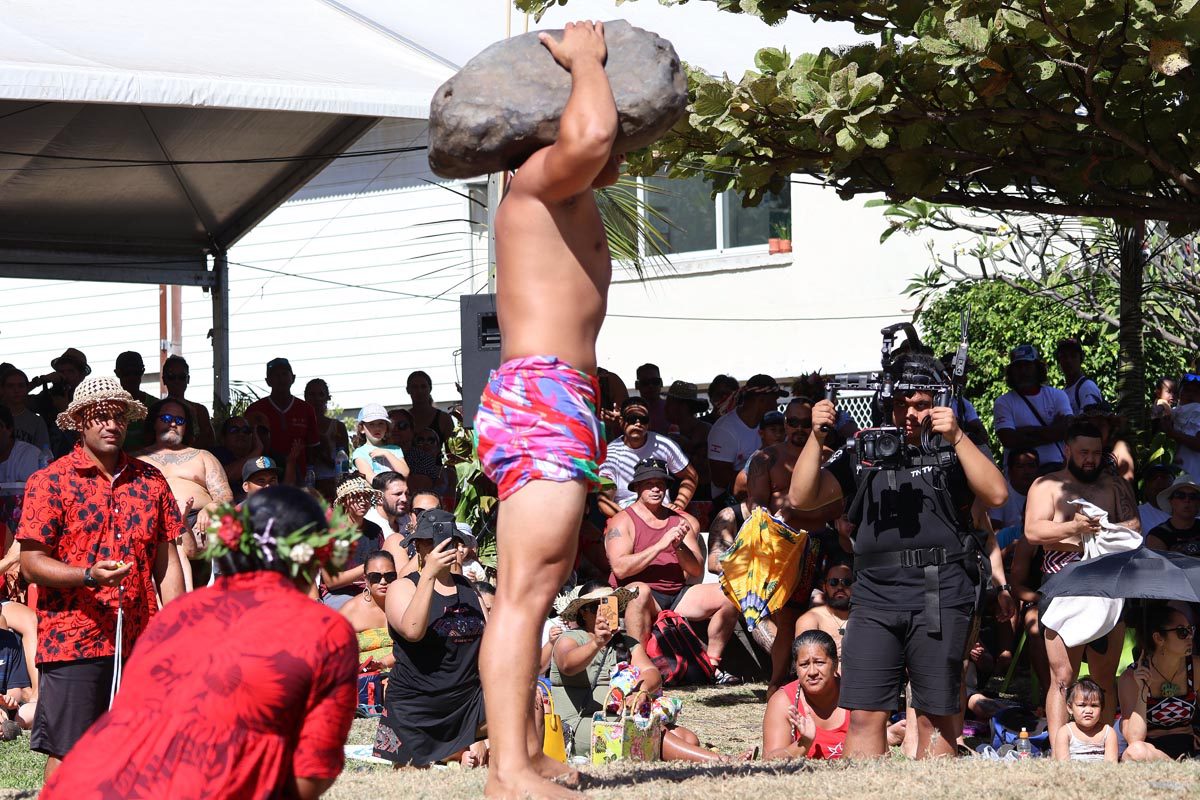
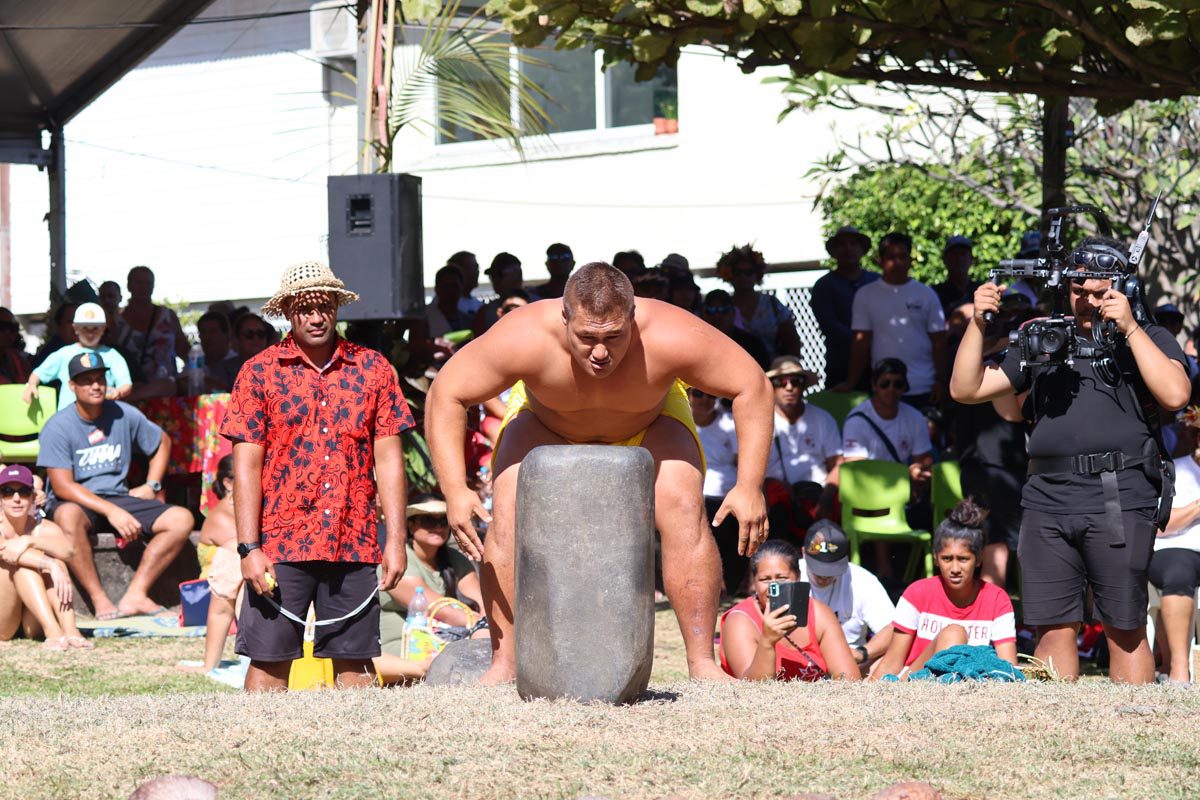
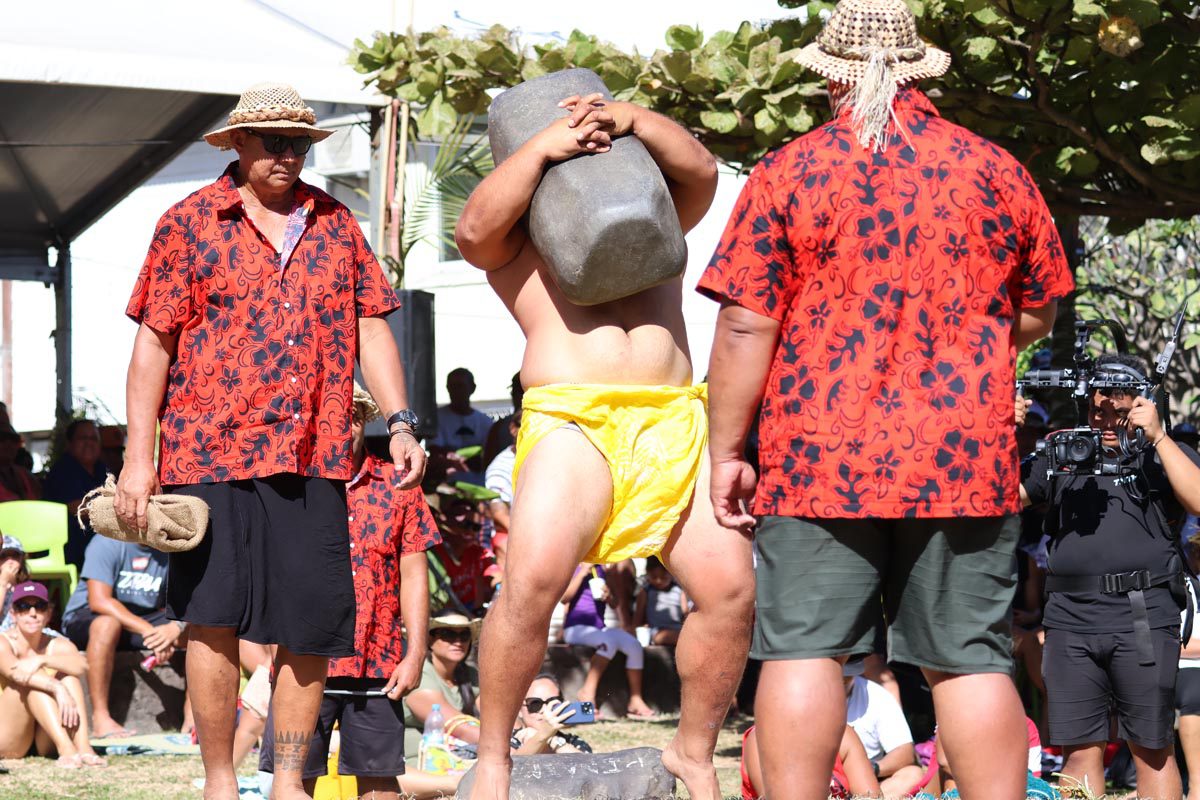
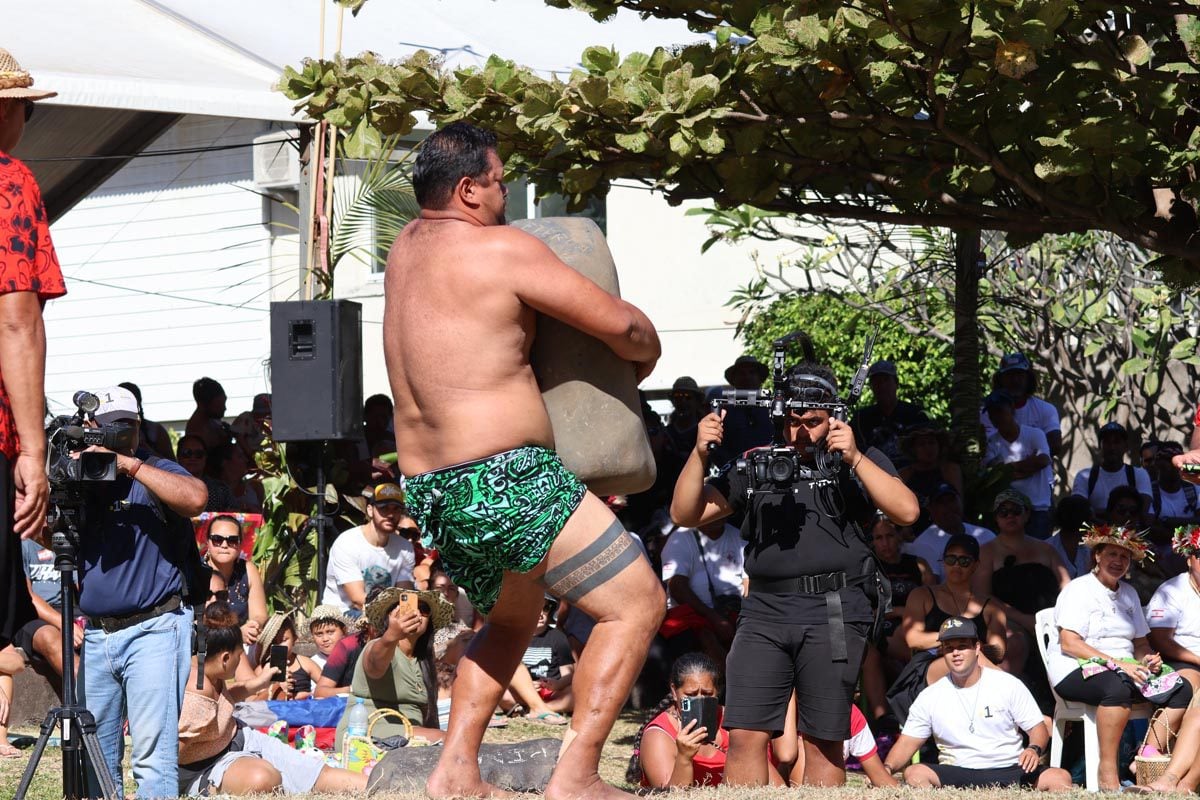
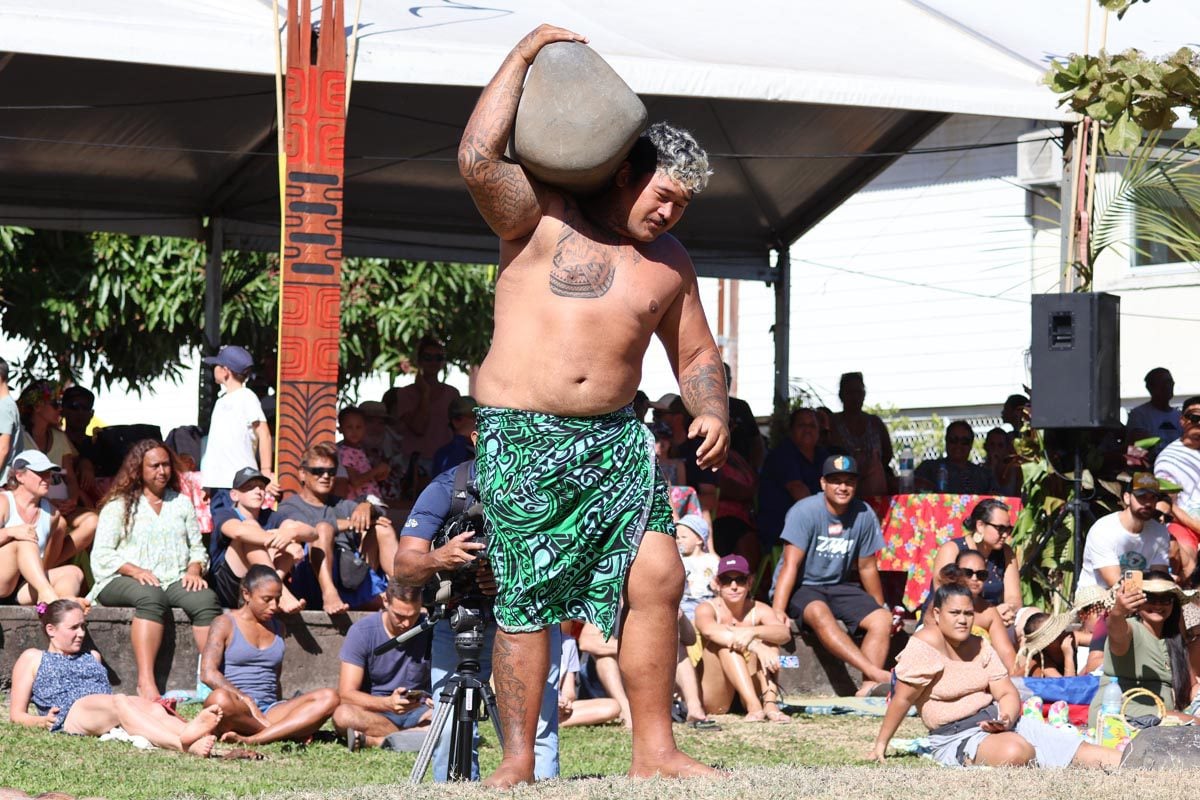
Ceremonial Performances
The ceremonial performances are not part of the competition but are a rare opportunity to experience authentic Polynesian culture. First, the fire walking ceremony officially marks the start of the Heiva Festival in Tahiti. This usually takes place at the end of June. On some weekends in July, usually on Sundays, the beautifully restored ancient temple at Marae Arahurahu on Tahiti’s west coast hosts an elaborate reenactment of a traditional religious ceremony followed by a highly acclaimed dance performance. Tickets must be purchased for both events.
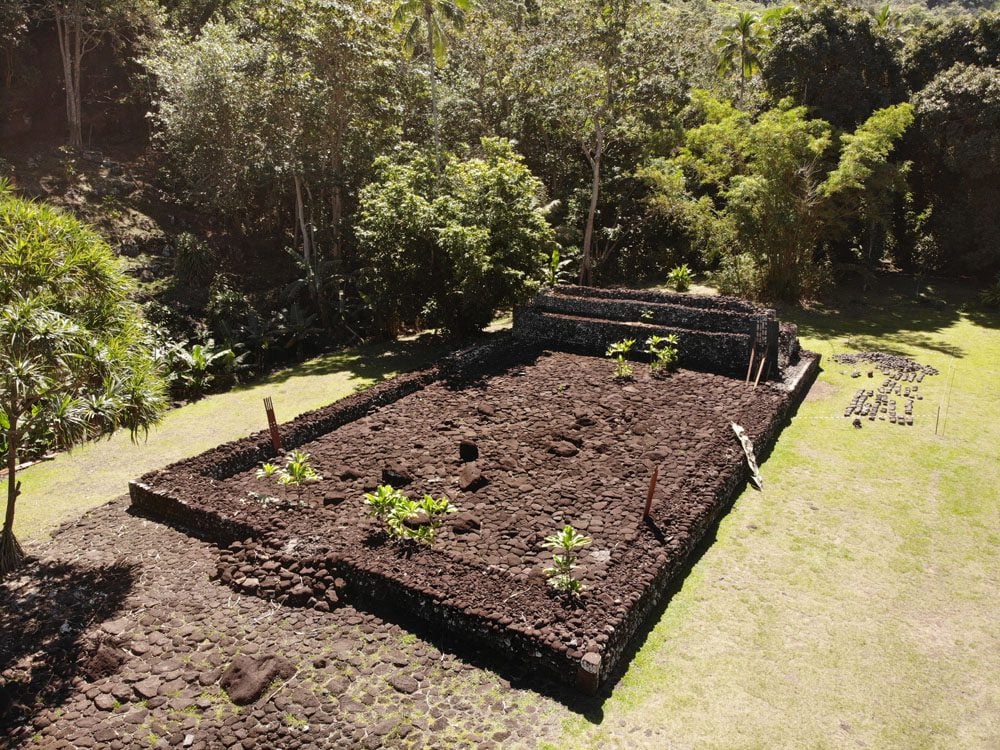
Crafts & Agricultural Exhibition
Crafts have always played an important part in Polynesian culture. Ranging from wood carvings to exquisitely painted tapa cloth, the best crafts come from the distant Marquesas Islands. In addition, these wouldn’t be dreamy tropical islands without fertile land that grows just about anything. Both cultural components are on display during the Heiva. They each follow the annual motif and are free to enter.
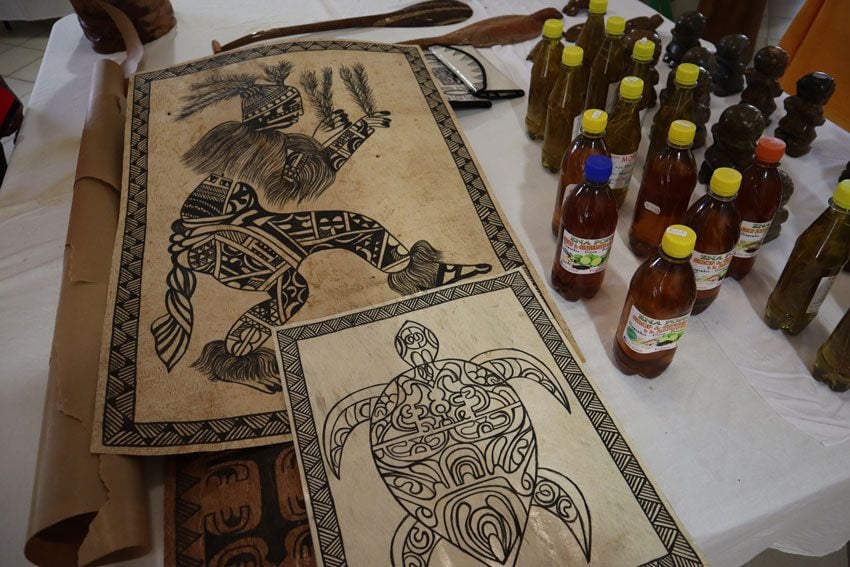
Getting Tickets to the Heiva
Tickets to the Heiva go on sale around mid-May, just weeks before the festival begins in Tahiti. The best way to secure tickets for the evening song and dance competition is online via the Maison de la Culture de Tahiti. If you’re visiting French Polynesia, consider planning your trip with a destination expert who can help secure tickets for the exotic festival and create a memorable itinerary that appeals to your tropical dreams and wishlist.
Where to Stay in Tahiti during the heiva
Since most of the action takes place in the capital city – Papeete, it is best to stay in the city or not too far away. Usually, visitors stay in Tahiti’s waterfront resorts, either west or east of the city. These tend to be more luxurious and quiet than the hotels within Papeete. Check out the Tahiti Travel Guide for in-depth reviews of Tahiti’s best accommodations in all categories.
What’s Next?
Do you want to experience the magic of the Heiva Festival in Tahiti? Get started using the French Polynesia Travel Guide, or get in touch for assistance in planning your once-in-a-lifetime trip to paradise!
Tahiti, Tailor Made!
The Islands of Tahiti are among the last places to be colonized by mankind, 118 islands, each with its unique personality.
Get expert advice and assistance with planning your trip to the destination where tropical dreams come true!
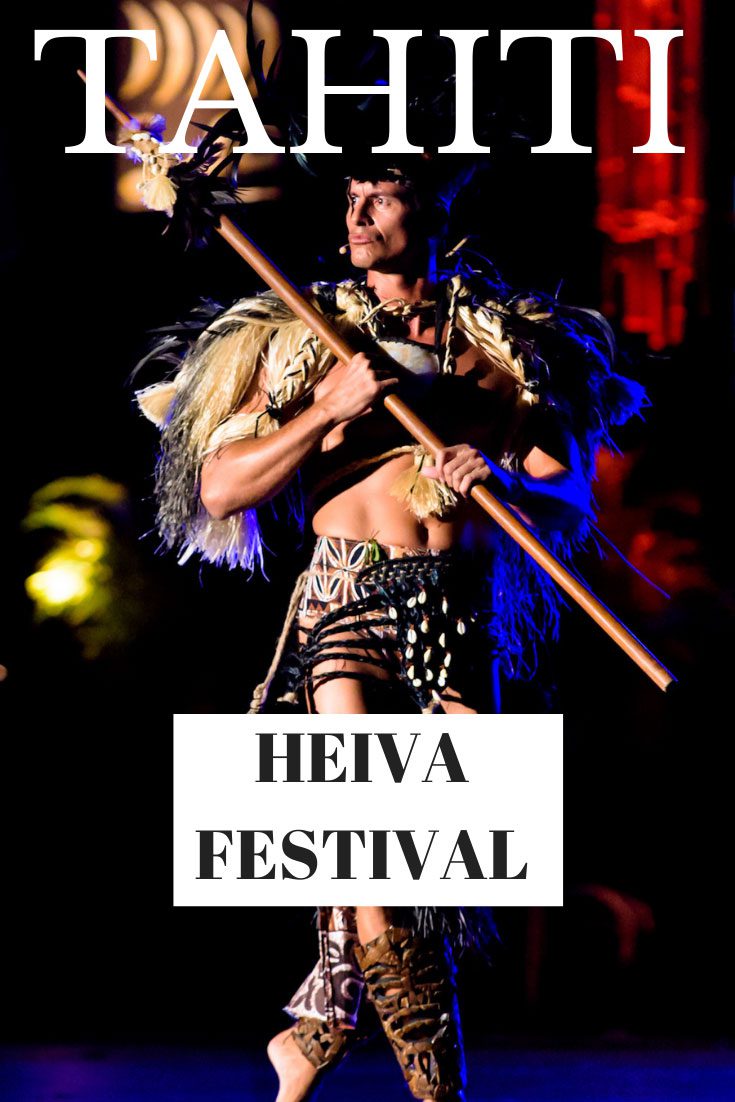
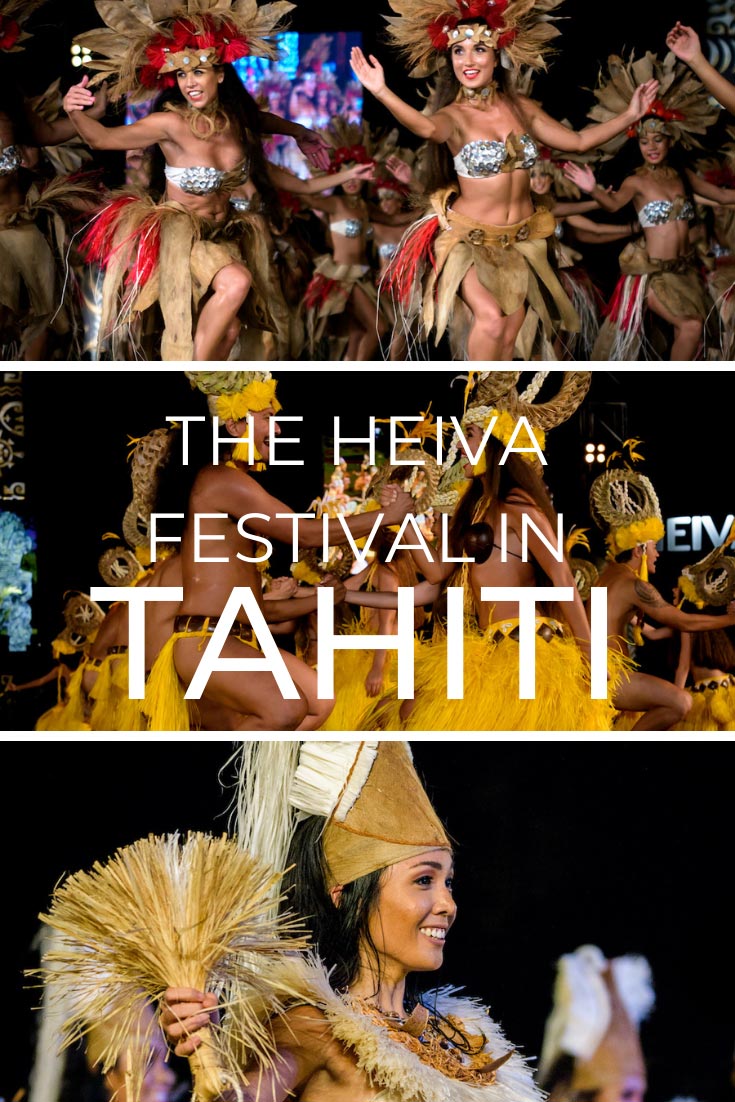
Pin These Images To Your Favorite Boards!
